Meet Our Experts
246 expertsResearch Strategy/Methods
Expertise
Member Center

Dr. Adams has been conducting research in South Carolina for over 20 years. As an epidemiologist, she has a deep understanding of research study design, sources of bias in research, and applied analytic methods. Much of her work has been conducted using a community-based participatory research approach in which she partners with African American community members to enhance the relevance and impact of her work. Her research has predominately focused on understanding the determinants of cancer health disparities experienced by African Americans and ways to intervene to improve these inequalities. Dr. Adams has received grant funding from multiple sources, including the National Cancer Institute, the Centers for Disease Control and Prevention, the South Carolina Cancer Alliance, and the South Carolina Cancer Center, among others. She has also received awards for her work from the Arnold School of Public Health, the Vice President for Research of USC, and the College of Nursing.

Dr. Prajakta Adsul is an Assistant Professor in the Department of Internal Medicine with a membership in the University of New Mexico's Comprehensive Cancer Center, with the Cancer Control and Population Sciences Research Program. Her research uses implementation science methods to understand the uptake and delivery of cancer screening in resource-limited clinical settings and under-served communities.
Prior to joining UNM, Dr. Adsul was a Cancer Prevention Fellow, working with the implementation science team at the National Cancer Institute. She received her medical training in India and her doctorate in Public Health at Saint Louis University College for Public Health and Social Justice.

Rima Afifi engages in public health research and practice with intent to promote social, community, and policy environments conducive to well being. Whenever possible, she uses methods of Community Based Participatory Research; applies an ecological lens to the understanding of the issues; engages multiple disciplines to widen the perspectives on any topic; and emphasizes knowledge transfer of research to practice and policy. She is specifically interested in intervention and implementation science. Most of Rima’s research and practice has centered on adolescent and youth health and well being, as well as on the Arab world. This has infused her research and practice with critical reflections on the impact of global politics, economics, trade; and of war, conflict and contexts of uncertainty; as well as the power of youth agency and voice. A secondary area of research emphasis has been tobacco control, specifically the global epidemic of hookah use. Using the Framework Convention on Tobacco Control as a guidance document, her research has explored determinants of use, as well as policy solutions to minimize the morbidity and mortality burden of this alternative tobacco product (ATP): waterpipe/hookah, midwakh, and e-cigarettes. Her research has documents prevalence and determinants of use of ATPs at the individual, interpersonal, organizational, community and policy levels. Rima has also evaluated a variety of intervention to prevent and control ATPs or tobacco use more generally, at individual (school-based), organizational (university smoke-free policies), and policy (national law) levels.

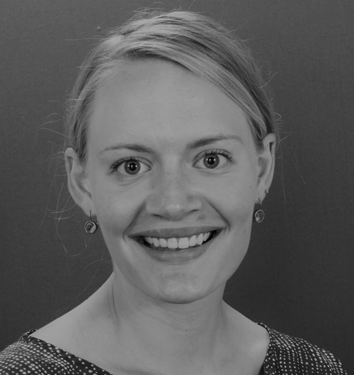
Caitlin G. Allen, PhD, MPH is a social and behavioral scientist with expertise in the implementation of evidence-based research to advance precision public health initiatives aimed at reducing health disparities. Her current research focuses on the implementation and sustainability of risk-stratified approaches for cancer prevention and early detection among underserved minority population. She has conducted implementation studies about the use of genomic technologies and family history collection in community and clinical settings, used mixed methods approaches to study models of genetic service delivery and patient and provider understanding of genomics. Dr. Allen is also passionate about training the next generation of scientists in the field of precision public health.

Shacoria Anderson is currently a PhD student in Behavioral, Social, and Health Education Sciences at Emory University. Previously, she worked as an ORISE fellow at the CDC, where she assisted with the implementation of three studies focusing on autism and developmental disabilities among children and adolescents. She also served as a research assistant at Emory Winship Cancer Institute’s Center for Community Outreach and Engagement. As an MPH student, she was inducted into the Delta Omega Public Health Honor Society. Her research interests include cancer prevention and control, implementation science, rural health, health equity, community based participatory research and mixed methods research. Her career goals are to develop comprehensive interventions and apply implementation science methods to improve cancer screening uptake among minority and rural populations, decreasing cancer disparities and burden.

Allison Antoine is the Outreach Program Manager for the Wisconsin Cancer Collaborative (WCC). In this role, she leads the strategic outreach strategy for the WCC as they work with the 140+ member organizations to implement the Wisconsin Cancer Plan 2020-2030. Prior to this work, she led a five-year CDC funded colorectal cancer control program within nine community health centers across Wisconsin. Allison is also the Past Chair of the National Association of Chronic Disease Directors’ Cancer Council, a council of 450+ members across all CDC-funded cancer programs. Allison received her Master of Public Health from the Medical College of Wisconsin in spring 2022. She earned her Bachelor of Science in Community Health Education and Spanish from the University of Wisconsin La Crosse and has been a certified health education specialist (CHES) since 2011. Allison is thrilled to participate in the 2021- 2022 CPCRN Scholars Program!

Dr. Hannah Arem's area of expertise is in implementation research related to behavioral modification for cancer prevention and control. She completed a two-year, mentored training in dissemination and implementation science training led by Ross Brownson at Washington University Saint Louis from 2013-2015, which shifted her work towards implementation science. Dr. Arem has served as a reviewer for the annual AcademyHealth Conference on the Science of Dissemination and Implementation Research in Health as well. Her research is focused on mHealth in relation to implementation science. Her PhD training is in Epidemiology, and she has experience conducting analyses with large datasets including from the NCI cohort consortium. Dr. Arem joined the MedStar Health Research Institute in December 2020 to build an implementation science program within their healthcare delivery research program. Through this program, she will be working on a variety of initiatives including health equity, cancer care delivery, and maternal and child health in relation to implementation science.

Natoshia M. Askelson is an Assistant Professor in the College of Public Health, Department of Community & Behavioral Health with an adjunct appointment in the Health Policy Research Program at the Public Policy Center. She currently serves as the PI for Iowa’s Cancer Prevention and Control Research Network Collaborating Center and for the PRC's core research project Active Iowa. Dr. Askelson is also Deputy Director of the Iowa PRC. She is trained as a behavioral scientist with an emphasis in health communication. Her research is focused on maternal, child and family health, with an emphasis on elementary-aged children and adolescents. She uses mixed methods to understand how policy and program changes influence positive and maladaptive behavior. She has conducted a number of studies related to Medicaid waiver programs and how enrollees understand and adapt to these programs. Additionally she has examined how parents, children and schools are responding to changes from the Healthy, Hunger-free Kids Act of 2010. Her interests in adolescent a health have resulted in a series of studies in adolescent pregnancy prevention and the HPV vaccine.




Dr. Barrington’s primary appointment is as Assistant Professor in the Department of Psychosocial & Community Health in the School of Nursing and also serves as Adjunct Assistant Professor in the Departments of Epidemiology and Health Services as well as Interdisciplinary Faculty in the Nutrition Sciences Program in the School of Public Health at the University of Washington. The focus of her research is to evaluate to what degree social position, structures, and systems perpetuate cancer health disparities via screening, stress, obesity, and related behaviors. Dr. Barrington’s research falls within two main schema: promoting healthy communities and racial disparities in clinical outcomes. She is using advanced methods including multilevel modeling and causal mediation analyses to explicate these relationships and is engaging in community-based participatory research to promote the health of vulnerable communities. Dr. Barrington teaches Social Determinants of Health and Health Equity as part of the core curriculum for the Doctor of Nursing Practice program as well as Introduction to Epidemiologic Methods as part of the Master’s in Public Health program.
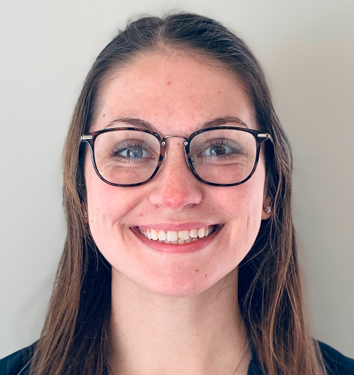
Lauren Bates-Fraser is a doctoral student at the University of North Carolina at Chapel Hill studying Human Movement Science in the department of Allied Health Sciences. She completed her Bachelor’s Degree in Exercise Science and Biology at SUNY Brockport and her Master’s Degree at the University of North Carolina at Chapel Hill in Exercise and Sport Science. Lauren’s primary research focus is exercise oncology, especially improving quality of life and reducing sedentary behavior in oncology populations. She also examines how the immune system responds to acute and chronic exercise as a potential therapy in oncology populations. Lauren is interested in the interactions of lifestyle behavioral factors and cancer risk, and the translation of basic and applied science into public health outcomes. She is extremely excited to be in the inaugural Cancer Prevention and Control Research Network Scholars program and looks forward learning more about dissemination and implementation science focused on cancer prevention and control.

Cici Bauer is an Assistant Professor from the Department of Biostatistics and Data Science from the University of Texas Health Science Center at Houston (UTHealth). She graduated from the University of Washington Seattle in 2012 with a PhD in Statistics. Her research areas include Bayesian spatial-temporal modeling, small area estimation, hierarchical models for survey data with complex designs, and social determinants of health and health disparities. Before she joined UTHealth in 2018, she served various positions in academia, the pharmaceutical industry, and the state government.

Jennifer W. Bea, PhD is a physiological scientist, focused on body composition and chronic disease research, with an emphasis on cancer. She is currently Co-director for the Body Composition Research Laboratory, a member of UACC Cancer Prevention and Control, and a member of the Collaboratory for Metabolic Disease Prevention and Treatment at UA. As an expert in body composition imaging, lifestyle interventions, circulating biomarkers, and genetics, Dr. Bea has made significant strides in understanding how to tailor interventions to optimize body composition and health, particularly among underserved communities.
Dr. Bea has evaluated risk factors for cancer within the Women’s Health Initiative, lifestyle and obesity being predominate. Among many contributions to interventional cancer prevention and control are Dr. Bea’s investigations into weight loss, and separately, resistance training, on metabolic regulation and change in body composition among breast cancer survivors. Dr. Bea is currently UACC PI of a physical activity intervention among Native American cancer survivors, “Restoring Balance in Indian Country.” Cancer prevention and control training is also a passion for Dr. Bea. She previously coordinated the R25 CPC postdoctoral fellowship and is now an M-PI for STEP-UP, an R25 CPC training program for underrepresented undergraduate and early graduate students. Dr. Bea is also the Research Education Core Lead for the Partnership for Native American Cancer Prevention (U54) at UACC, which provides research opportunities and training for undergraduate students.
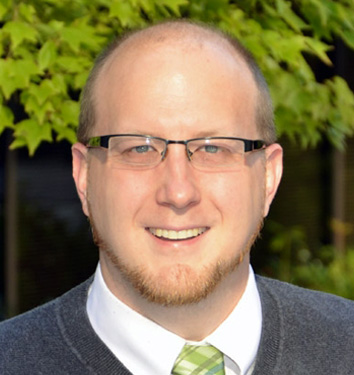
Dr. Robert Bednarczyk is a quantitative epidemiologist by training, with a focus on the epidemiology of vaccine uptake, particularly HPV vaccine. Dr. Bednarczyk has also completed training in behavioral sciences and intervention development and evaluation as part of an NIH K award.

Dr. Beima-Sofie is an Acting Assistant Professor in the Department of Global Health at the University of Washington. She is a qualitative researcher with implementation science training serving as core faculty for the UW/FHCRC Center for AIDS Research Behavior Science Core, as well as faculty for the Global Center for Integrated Health of Women, Adolescents, and Children (Global WACh) and the Kenya Research and Training Center (KRTC). Dr. Beima-Sofie’s research interests have coalesced around understanding factors that influence the health of women, adolescents and children affected by HIV. Aligning with these interests, her current research projects focus on evaluating interventions and national programs for adolescents affected by HIV including programs and policies around HIV disclosure to children and adolescents, transition from pediatric to adult care, healthcare provider interventions that optimize HIV treatment support. She is also involved in several projects to optimize provision of PrEP to HIV negative pregnant women and other key populations.
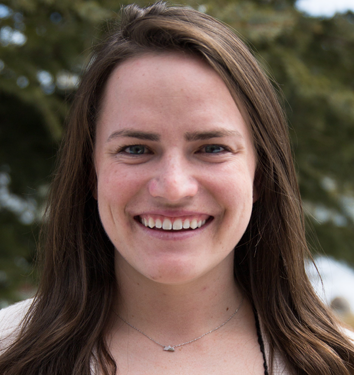
Emily Bilenduke is a Clinical Health Psychology doctoral candidate at the University of Colorado Denver. She graduated from the University of Redlands with a degree in Psychology. Later, she worked at the Summit Community Care Clinic, a primary care clinic in rural Colorado, as the grant coordinator. Her time at the clinic inspired her to evaluate how people interact with their health. Emily defended her Master’s thesis on the association of microbiome and mood changes in women diagnosed with breast cancer receiving chemotherapy treatment. Her current research interests include psychosocial interventions improving mental and behavioral health in cancer patients and caregivers, barriers to psychosocial care, health disparities, and integrated care.

Sarah Birken, PhD is an Associate Professor in the Department of Implementation Science in the School of Medicine and a Member of Wake Forest Baptist Health’s Comprehensive Cancer Center at Wake Forest University. Dr. Birken’s research focuses on translating evidence into practice. Specifically, Dr. Birken studies middle managers’ roles in implementing evidence-based practices, the implementation of innovations in cancer care, and the selection and application of implementation theories. Dr. Birken’s research has been funded by the Agency for Healthcare Research and Quality, the Cancer Research Network, the Centers for Disease Control and Prevention, and the National Cancer Institute. Dr. Birken serves as a National Institutes of Health Center for Scientific Review Early Career Reviewer and Core Faculty in the Dissemination and Implementation Science Methods Unit of the North Carolina Translational & Clinical Sciences Institute. Dr. Birken has served as an expert speaker for organizations such as the National Cancer Survivorship Resource Center, the Veterans Affairs Center for Clinical Management Research, the Center for Disease Control and Prevention's National Comprehensive Cancer Control Program Directors, and the American Society of Clinical Oncology’s Survivorship Committee.

Dr. Sarah Blake, PhD, MA is an assistant research professor in the Department of Health Policy & Management at the Rollins School of Public Health. The majority of her work utilizes mixed research methods to examine the effects of health policies on the delivery and quality of care for medically vulnerable populations, particularly low-income women and children. Dr. Blake has conducted numerous studies that examined the translation of evidence-based public health strategies into policy and practice. In prior work for the American Cancer Society (ACS) and the CDC, I have completed research on the earlier effects of the National Breast and Cervical Cancer Early Detection Program (NBCCEDP) on preventive care screens for women, the screening patterns of regular users of the NBCCEDP in Georgia as they move into Medicare and the impact of the Breast and Cervical Cancer and Prevention Act (BCCPTA) on timely enrollment and treatment in the Medicaid program. Dr. Blake is a member of the Emory University Winship Cancer Institute’s Cancer Prevention and Control program.
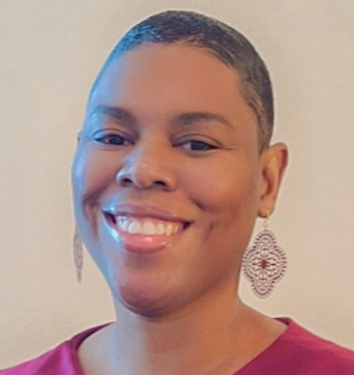
Dr. Brandford is the Assistant Associate Director for Community Outreach and Engagement at Houston Methodist Neal Cancer Center. Arica brings a wealth of experience and passion for community-based initiatives to her role. Her responsibilities include collaborating with the Houston Methodist Community Benefits Office and community-based partners to disseminate and implement evidence-based interventions, public education, and health policy recommendations, particularly in communities disproportionately impacted by cancer. Additionally, Dr. Brandford works to develop innovative approaches to prevention and screening opportunities through extramural funding avenues, as well as facilitating research proposals and initiatives in the community alongside the cancer center's research team.

Heather M. Brandt, PhD is director of the HPV Cancer Prevention Program at St. Jude Children’s Research Hospital and co-associate director for outreach in the St. Jude Comprehensive Cancer Center. She also serves as a full member of the cancer center in the department of epidemiology and cancer control. She is a faculty affiliate in the University of Memphis School of Public Health and University of South Carolina Arnold School of Public Health.
As a social and behavioral scientist, her research interests focus on cancer-related health disparities in cancer prevention and control and specifically on working with stakeholders to effectively use what we know works to increase HPV vaccination. This involves examining, describing, and intervening on cancer-related health disparities through innovative approaches in partnership with “communities” (defined broadly and diversely). Her research emphasizes dissemination and implementation of evidence-based approaches, knowledge-based practice, and co-creating knowledge with stakeholders in order to improve outcomes through informed action on multiple levels. Most of her work has been done with churches, non-profit organizations, and health care settings, including in rural areas, to improve cancer prevention and control outcomes.

Dr. Alison Brenner is a Research Assistant Professor in the Division of General Medicine and Clinical Epidemiology and the Associate Program Director of the Carolina Cancer Screening Initiative at the Lineberger Comprehensive Cancer Center at the University of North Carolina. She is a mixed methods researcher with a primary focus on patient-provider shared decision-making in preference sensitive decisions, values clarification methodology, implementation of cancer screening programs, patient decision support implementation, and intervention research. She has particular expertise in colorectal cancer screening implementation in primary care settings, focusing on rural or otherwise underserved populations. Additionally, she has some expertise in lung cancer screening implementation and quality improvement.

Becky is the project director for the University of Iowa Cancer Prevention and Control Research Network. She is also a Research Manager for the Prevention Research Center for Rural Health. In these roles, Becky oversees the day to day operations of multiple projects. Her research focuses on physical activity, health disparities, community engagement, vaccination, and cancer. In the past she has additionally managed projects in the fields of falls prevention, farm safety, and healthy retail. She has worked extensively in rural communities throughout Iowa, promoting evidence-based public health initiatives through Community Engaged Research and Community Based Participatory Research.

Veronica Carlisle is the Community Health Educator for Lineberger Comprehensive Cancer Center and Peers for Progress. She has worked 17 years in community outreach, education and engagement with a focus on cancer health equity. Serving as a bridge between researchers and the community, she works bidirectionally to share needs, information and resources. Veronica facilitates partnerships between research teams and community organizations including community-based organizations, faith-based organizations and federally qualified health centers. To improve cancer health equity, she has worked with the lay health advisor model. She also has experience in cancer education material development and dissemination; as well as intervention planning, implementation and evaluation.

Dr. Margaret Carrel's research centers on exploring geographic patterns of health and disease using GIS and spatial statistical techniques. The focus of their current research is to understand how complex interactions between people and environments result both in disease outcomes and the progressive evolution of human pathogens.
As a research emphasis, human-environment drivers of pathogenic evolution is situated in the emergent field of landscape genetics, which combines the spatial analytic techniques of landscape ecology and geography with the computational methods of population genetics. Dr. Carrel is applying these landscape genetics methods to the study of H5N1 influenza in Vietnam, H1N1 in China, malaria drug resistance in the Congo and HIV drug resistance in North Carolina.
Dr. Carrel also conducts diarrheal disease research in rural Bangladesh, examining how the installation of flood control measures and deep drinking water tubewells interact to produce or prevent diarrheal events. Projects based in Iowa examine the patterns of drug resistant Staphylococcus aureus, particularly in relationship to livestock production.
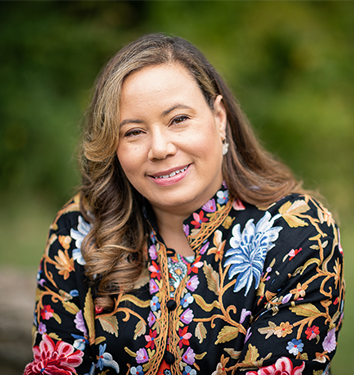
Dr. Lisa Carter-Bawa is a behavioral scientist with nearly 2 decades of clinical experience as a nurse practitioner. She completed her PhD at the University of Louisville in 2013 and postdoctoral fellowship at Indiana University in Behavioral Oncology in 2015. She was inducted as a Fellow in the American Academy of Nursing for her work in patient-clinician communication in complex cancer screening decisions in 2018. She is currently the Director of the Cancer Prevention Precision Control Institute at the Center for Discovery & Innovation in New Jersey and a Co-Leader of Cancer Prevention & Control and Co-Director of Community Outreach & Engagement for the Georgetown Lombardi Comprehensive Cancer Center consortium. Her research focuses on shared decision-making in lung cancer screening using tailored interventions and addressing cancer health inequities. Her work has been continuously funded for the past decade by multiple organizations including the National Cancer Institute and the American Lung Association.

Scott C. Carvajal, PhD, MPH, is a Professor and PI/Co-Director of the Arizona Prevention Research Center (AzPRC) at the University of Arizona and is a multi-discipline trained applied social and quantitative psychologist with expertise in health promotion theory, Latino/cultural behavioral research methods, intervention design and evaluation methods. He has partnered with four federally-qualified health centers that serve majority Hispanic populations in Arizona to lead multiple chronic disease preventive intervention research studies that focus on diet, physical activity, and mental well-being, often employing quasi-experimental evaluation methods.

Dr. David Chambers is Deputy Director for Implementation Science Team in the Office of the Director in the Division of Cancer Control and Population Sciences (DCCPS) at the National Cancer Institute (NCI). Dr. Chambers manages a team focusing on efforts to build and advance the field of Implementation Science (IS) through funding opportunity announcements, training mechanisms, dissemination platforms, and enhancement of partnerships and networks to integrate research, practice and policy.
From 2008 through the fall of 2014, Dr. Chambers served as Chief of the Services Research and Clinical Epidemiology Branch (SRCEB) of the Division of Services and Intervention Research at the National Institute of Mental Health (NIMH). He arrived at NIMH in 2001, brought to the Institute to run the Dissemination and Implementation Research Program within SRCEB, where he continues to manage a portfolio of grants that study the integration of scientific findings and effective clinical practices in mental health within real-world service settings. From 2006 to the fall of 2014, Dr. Chambers also served as Associate Director for Dissemination and Implementation Research, leading NIH initiatives around the coordination of dissemination and implementation research in health, including a set of research announcements across 15 of the NIH Institutes and Centers, annual scientific conferences, and a summer training institute. Prior to his arrival at NIH, Dr. Chambers worked as a member of a research team at Oxford University, where he studied national efforts to implement evidence-based practice within healthcare systems. He publishes on strategic research directions in implementation science and serves as a plenary speaker at numerous scientific conferences. He received his A.B. degree (with Honors) in Economics from Brown University in 1997, and an M.Sc. and D.Phil degree in Management Studies (Organisational Behaviour) in 1998 and 2001, respectively, from Oxford University (UK).

Dr. Charlton is an Associate Professor in the UI Department of Epidemiology and Associate Director of the Iowa SEER Cancer Registry. Her research focuses on rural disparities in the prevention, diagnosis and treatment of cancer.
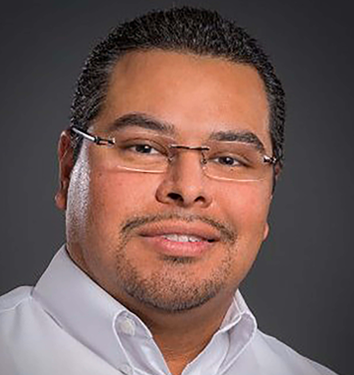
Dr. Enmanuel ("Manny") Chavarria's research focuses on addressing cancer disparities by leveraging communication technologies. Dr. Chavarria's research implements evidence-based interventions in community-based settings delivered via culturally salient manners among medically underserved and vulnerable populations. Dr. Chavarria's research interests are twofold: 1) Investigate reasons for cancer disparities that burden underserved and vulnerable populations, and 2) develop interventions that ameliorate these disparities. Dr. Chavarria aims to promote health equity through research that looks to reduce the burden of cancer incidence and mortality among medically underserved and vulnerable populations.

Perla Chebli, PhD, MPH is a Postdoctoral Fellow at the Section for Health Equity at the NYU Department of Population Health. Her primary areas of focus are community-engaged research, cancer disparities, intervention development, and implementation science. Dr. Chebli's current research projects examine: multilevel factors influencing HPV vaccine hesitancy in immigrant communities in Brooklyn to develop responsive interventions; and community engagement strategies leveraged in the implementation of community-based cancer interventions in NYC. In past research projects, she: engaged diverse Arab American community stakeholders to explore cancer-related needs in Chicago and identify priorities for acceptable, culturally-congruent cancer interventions; analyzed interviews with Latina breast cancer survivors and providers to understand multilevel determinants of financial toxicity; and conducted a process evaluation of community-based breast cancer interventions with Latina women in Chicago. Dr. Chebli holds a Master of Public Health from New York University and a PhD in Public Health from the University of Illinois at Chicago.


Allison Cole, MD, MPH is a family physician and researcher at the University of Washington. She is Associate Director for the WWAMI region Practice and Research Network and Co-Director of the Community Engagement Program at the Institute of Translational Health Sciences. Her research efforts focus on dissemination and implementation of evidence-based cancer screening programs and systematic strategies for addressing cancer screening disparities. She completed her medical training at the University of Iowa and earned a Master’s in Public Health from the University of Washington.

Gloria Coronado, PhD, is an epidemiologist who champions affordable, long-term solutions to health disparity issues. She leads a well-funded research portfolio that inspires health system leaders to make sensible, evidence-informed choices to engage hard-to-reach populations in life-saving preventive behaviors.
Dr. Coronado has developed several innovative, cost-effective interventions to improve rates of participation in cancer screening among patients served by community health centers. Her work has led to successful partnerships with large health plans, state institutions, and community clinics. She currently directs or co-directs three programs that employ systems-based approaches to raise the rates of colorectal cancer screening and follow-up in health plans and clinics in Washington, Oregon, and California.
Dr. Coronado’s research uses existing health system data and population segmentation approaches to proactively deliver outreach to patients who need it the most; her research strives to promote health care efficiency while advancing equity.

Gloria Coronado, PhD is an epidemiologist and the Mitch Greenlick Endowed Senior Investigator in Health Disparities Research at Kaiser Permanente Center for Health Research. She completed her training at Stanford University and the University of Washington. Dr. Coronado’s research has focused on understanding and addressing disparities in the occurrence and burden of disease in underserved populations, with a special emphasis on the Latino population in the Pacific Northwest. She has developed several innovative and cost-effective interventions to improve rates of participation in cancer screening among Latinos. Her innovative work has led to successful partnerships with large health plans, state institutions, and clinics serving migrants and the uninsured. She currently directs or co-directs three programs that use systems-based approaches to raise the rates of colorectal cancer screening in health plans and clinics in Washington, Oregon and California.

Dr. Virmarie Correa-Fernandez is an Associate Professor in the Department of Psychological, Health and Learning Sciences and director of the Latino and Behavioral Health Research Team at the University of Houston. She is a bilingual clinical psychologist and a Tobacco Treatment Specialist. She has been working in the tobacco control field for over 20 years in Puerto Rico and the United States; first as a clinician and then as a researcher. The overall mission of her research program is to generate knowledge and practices that contribute to reducing tobacco-related and behavioral health disparities, particularly among Latine ethnic groups. Funded by the American Cancer Society, Dr. Correa-Fernandez completed a feasibility pilot study to develop, culturally adapt, and test an Acceptance and Commitment Therapy-based smoking cessation intervention for Latine smokers with co-occurring depression/anxiety symptoms. She has also worked on understanding the perspectives of Spanish-speaking smokers about cessation support using qualitative methods. Dr. Correa-Fernandez has been co-investigator on an NIH clinical trial as well as in the Cancer Prevention & Institute of Texas' Taking Texas Tobacco Free Program, which implemented tobacco education and tobacco-free workplace policies among behavioral health centers.

Derek Craig, PhD is an NCI T32 postdoctoral fellow at the University of Texas Health Science Center (UTHealth) at Houston School of Public Health (SPH). His research focuses on physical activity promotion, implementation science, and cancer prevention. In November 2022, Dr. Craig successfully defended his dissertation, titled "Examining the Development of Youth Physical Activity Interventions and Factors Associate," in which he used qualitative and quantitative methods to better understand the factors contributing to the implementation of school- based physical activity opportunities. Derek also serves as a research coordinator on an R01 study that is working with a national network of federally qualified health centers (FQHCs) and schools to develop and validate a measure of organizational readiness for implementation.
Prior to obtaining his PhD in Health Promotion and Behavioral Sciences from UTHealth-Houston, Dr. Craig earned his MPH in Community Health Practice from DePaul University and BS in Kinesiology from Indiana University.
Derek Craig, PhD is an NCI T32 postdoctoral fellow at the University of Texas Health Science Center (UTHealth) at Houston School of Public Health (SPH). His research focuses on physical activity promotion, implementation science, and cancer prevention. In November 2022, Dr. Craig successfully defended his dissertation, titled "Examining the Development of Youth Physical Activity Interventions and Factors Associate," in which he used qualitative and quantitative methods to better understand the factors contributing to the implementation of school- based physical activity opportunities. Derek also serves as a research coordinator on an R01 study that is working with a national network of federally qualified health centers (FQHCs) and schools to develop and validate a measure of organizational readiness for implementation.
Prior to obtaining his PhD in Health Promotion and Behavioral Sciences from UTHealth-Houston, Dr. Craig earned his MPH in Community Health Practice from DePaul University and BS in Kinesiology from Indiana University.
Derek Craig, PhD is an NCI T32 postdoctoral fellow at the University of Texas Health Science Center (UTHealth) at Houston School of Public Health (SPH). His research focuses on physical activity promotion, implementation science, and cancer prevention. In November 2022, Dr. Craig successfully defended his dissertation, titled "Examining the Development of Youth Physical Activity Interventions and Factors Associate," in which he used qualitative and quantitative methods to better understand the factors contributing to the implementation of school- based physical activity opportunities. Derek also serves as a research coordinator on an R01 study that is working with a national network of federally qualified health centers (FQHCs) and schools to develop and validate a measure of organizational readiness for implementation.
Prior to obtaining his PhD in Health Promotion and Behavioral Sciences from UTHealth-Houston, Dr. Craig earned his MPH in Community Health Practice from DePaul University and BS in Kinesiology from Indiana University.
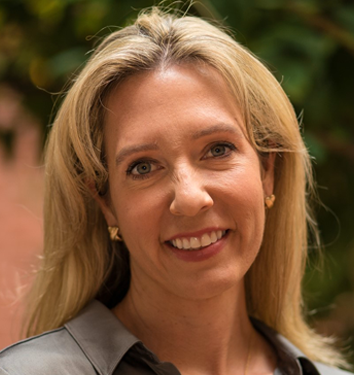
Dr Crane's research career has been focused on cancer survivorship. A primary research priority is to improve adherence to healthy lifestyle behaviors including diet, physical activity and tobacco abstinence in both cancer survivors and their informal caregivers, while building an evidence base for e and mhealth interventions in an effort to reach the greatest number of survivors. Additionally, with the majority of survivors living with lingering and burdensome symptoms as a result of treatment-related toxicities and adverse events that challenge their ability to achieve recommended diet and physical activity goals, designing lifestyle interventions that address and are integrated with symptom management strategies is the primary foci of her research.


Jen Cruz (she/her) is a Population Health Sciences PhD student in the Department of Social and Behavioral Sciences at Harvard T.H. Chan School of Public Health. Her overall research interests are at the intersection of social epidemiology, health equity, and implementation science. Through her dissertation, she will be exploring the heterogeneity of rurality in the US and how to leverage contextual differences in identifying setting-appropriate interventions to address persistent inequities in breast cancer screening. Jen is a predoctoral fellow at the Harvard/Dana-Farber Cancer Institute Educational Program in Cancer Prevention, a National Institutes of Health T32 grant, as well as a member of the FXB Center for Health & Human Rights doctoral cohort. She is also a trainee in the Implementation Science Center for Cancer Control Equity working on projects focused on increasing preventative cancer screening in community healthcare settings. Prior to pursuing her PhD, Jen received her MPH in Global Health Epidemiology from the University of Michigan and her BS in Psychology from Seattle University.
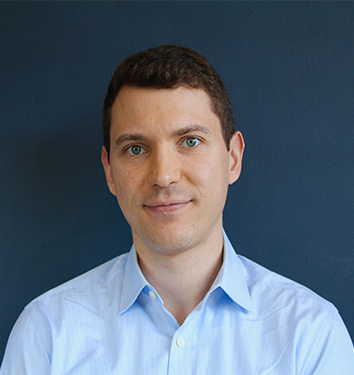
James Daly is the Project Director for the Massachusetts Cancer Prevention and Control Research Network and supports other implementation science and community engagement activities at the Prevention Research Center on Nutrition and Physical Activity at the Harvard T.H. Chan School of Public Health. He also serves as the Assistant Director for Research Operations at the Massachusetts Partnership for Community-Engaged Cancer Control Equity working closely with local community health centers, and supports efforts at the Harvard Catalyst Community Engagement Program seeking to increase the pace of adoption of evidence-based programs and policies to promote health, prevent disease, and eliminate disparities. James holds a Master of Public Health degree from Boston University with a concentration in Community Assessment, Program Design, Implementation, and Evaluation.
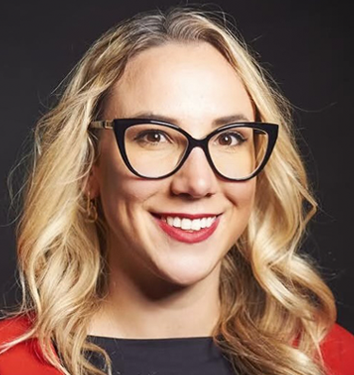
Dr. Maša Davidović is a medical doctor, epidemiologist, and PhD student in Health Sciences at the Swiss Tropical and Public Health Institute in Basel, Switzerland. She holds an MSc in Health Sciences, specialization Epidemiology from the Erasmus University Rotterdam, Netherlands, and a medical diploma from the Faculty of Medicine, University of Belgrade, Serbia. She has received the SSPH+ Global PhD Fellowship Program in Public Health Sciences (GlobalP3HS), funded by Marie Skłodowska-Curie Actions, to pursue a PhD. She worked as a teaching assistant at the Institute of Social Medicine at the Faculty of Medicine, University of Belgrade (2018-19), and as a PhD student in Cancer Research Group at the Institute of Social and Preventive Medicine, University of Bern (2019-20). Her research aims to develop and implement a standardized data set for data collection and cervical cancer screening program monitoring in collaborating sites offering cervical cancer screening to women living with HIV in four African regions. She has a huge passion for improving cancer prevention and early diagnosis among vulnerable populations in low-resource settings.

Melinda Davis, PhD, is Associate Professor in the Department of Family Medicine and OHSU-PSU School of Public Health and the Director of Community Engaged Research for the Oregon Rural Practice-based Research Network. She uses participatory methods to conduct research to reduce disparities in rural and vulnerable populations. Dr. Davis is currently funded through an NCI K07 scholar. She is leading research to understand regional variation in colorectal cancer screening and to implement interventions to improve colorectal cancer screening in collaboration with the Community Health Advocacy and Research Alliance, Oregon Coordinated Care Organizations (CCOs), and other state and national partners.

Natalie Del Vecchio, PhD is a recent graduate from the University of Iowa College of Public Health. Her research interests in cancer epidemiology include health-services research, cancer disparities, health-related quality of life, health equity, and cancer survivorship. Her dissertation focused on the intersection of health literacy and how patients navigate cancer care, specifically examining how decision-making, care coordination, and survivorship care planning affect the quality of care received as well as health-related quality of life in survivorship
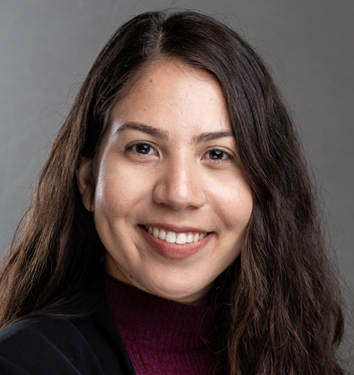
Emanuelle Dias, MPH is a PhD student at the University of Texas Health Science Center (UTHealth) at Houston in the Department of Health Promotion and Behavioral Sciences. She completed her bachelor’s degree in Anthropology from the University of Florida and her MPH degree from the University of South Florida. Her research focuses on improving cancer care access in resource-constrict settings, such as Federally Qualified Health Centers. Her overall research interests include the intersections of implementation science, cancer prevention and control, health communication, and health equity. She is very excited to join the second cohort of the Cancer Prevention and Control Research Network (CPCRN) Scholars program and looks forward to strengthening her skills and knowledge in implementation science focused on cancer prevention and control.

William Doucette is Professor and Head in the Division of Health Services Research in the College of Pharmacy at the University of Iowa. His primary research interest is to study pharmacists’ influence on medication management and use, especially for patients with chronic conditions. He has been principal investigator on grants exceeding two million dollars and has co-authored more than 150 peer-reviewed articles. Professor Doucette has been a member of scientific review panels for the National Institutes of Health (NIH) and the Agency for Healthcare Research and Quality (AHRQ).

My research background lies at the intersection of cancer and immunology, where I study the molecular mechanisms of breast cancers and the pathophysiology they exploit to resist clinical therapy and metastasize. After completing my undergraduate degree in Biochemistry with support from the NIH’s MARC fellowship, I joined the University of Iowa’s Medical Scientist Training program in 2021 with the goal of learning how to translate this type of basic science research to patients at the bedside as a physician-scientist. Having personally cared for cancer patients throughout my clinical work as a medical student, I now have a broader understanding of the term “translational”. People seeking cancer care not only present to clinic with unique pathophysiology and mechanisms of disease, but also a unique story and social context that significantly impacts their disease processes and trajectory of care. My research interests now have broadened to include not only the etiological and pathological aspects of disease understood through bench science but also the population science aspects of a lived disease experience. I am particularly passionate about working with sexual and gender minorities to better understand the patient-, provider-, and multilayered system-level barriers and facilitators to care that shape healthcare experiences within a community.


Jan Eberth is an Associate Professor in the Department of Epidemiology and Biostatistics at the University of South Carolina and the Deputy Director of the SC Rural Health Research Center. Dr. Eberth received her PhD from the University of Texas School Of Public Health and a postdoctoral fellowship from MD Anderson Cancer Center. The focus of her research is cancer health disparities, particularly socioeconomic and structural barriers that impede access and utilization to cancer screening and treatment. She is the co-chair of the CPCRN Rural Cancer Workgroup.

Jean Edward, PhD, RN, CHPE, is an Assistant Professor at the College of Nursing, University of Kentucky and Nurse Scientist for UK HealthCare’s Markey Cancer Center. Dr. Edward's program of research is focused on promoting equitable access to healthcare for underserved communities by examining the influence of social determinants on healthcare access, affordability and health outcomes. Her program of research utilizes community-based, mixed methods and interdisciplinary approaches to develop interventions that promote equity in access to and affordability of healthcare. Her current research focuses on developing and implementing tailored consumer-, systems-, and community-level programs to improve cost-related health literacy, promote health-seeking behaviors and support healthcare decision-making in underserved communities. She is currently implementing an interdisciplinary program to enhance cost of care conversations in healthcare settings to help address financial toxicity of patients and families with childhood cancers.

Karen Emmons is a Professor of Social and Behavioral Science at the Harvard T.H. Chan School of Public Health. She has expertise in cancer equity and in implementation science. Her work focuses on community-engaged approaches to implementation of cancer prevention and early detection interventions in settings that serve historically disadvantaged communities. She has more than 300 peer-reviewed publications and has served as PI for multiple NIH-funded research projects and centers. She also serves as Faculty Director of the Community Engagement Program for Harvard’s Clinical Translational Science Award, Harvard Catalyst, which focuses on advancing evidence-based strategies to improve community health and creating bi-directional relationships between community partners and researchers. She serves as the MPI of Harvard Chan’s T32 training grant in cancer prevention and control and has received multiple mentoring awards. Her research has also been recognized by honors including the Morse Distinguished Researcher Award, Outstanding Senior Cancer Scientist Award from the Society of Behavioral Medicine, and Outstanding Scientist Award from the Society of Behavioral Medicine. She is Past-President of the Society of Behavioral Medicine, a member of the National Academy of Medicine, a member of the National Cancer Advisory Board, and a member of the Community Preventive Services Task Force.

Jennifer Erdrich, MD, MPH, FACS, is a surgical oncologist and assistant professor with the Division of General Surgery at the University of Arizona Department of Surgery who specializes in melanoma, sarcoma, and breast cancers. She also provides general surgical oncology care to tribal populations throughout southern Arizona. Dr. Erdrich's research centers on cancer care and prevention for Native Americans with focus on interventions that address the inflammatory/metabolic pathways in cancer.

Founding Dean of the GSU School of Public Health and longest serving Director of CDC's Office on Smoking and Health. Currently Regents' Professor and PI of our Prevention Research Center focused on Social Isolation and Loneliness among refugees in Clarkson Georgia. Previously Director of Behavioral Research at MD Anderson Cancer Center

Cam Escoffery, PhD, MPH, CHES is an Associate Professor in the Department of Behavioral Sciences and Health Education at the Rollins School of Public Health at Emory University. Dr. Escoffery has over 25 years of experience in health promotion, cancer prevention and control, and evaluation/implementation research. She has received funding from the National Cancer Institute, Centers for Disease Control and Prevention, American Cancer Society, and foundations.

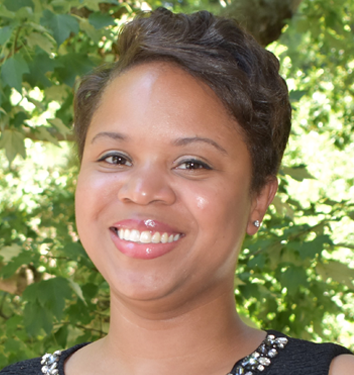
Donoria Evans, PhD has more than twenty years of experience in program evaluation and behavioral research focused on cancer screening and survivorship, behavioral health, health disparities, community engagement, and community-based participatory evaluation. She has a broad range of experience in mixed methodology evaluation design, data collection and analyses. Dr. Evans has contributed to evaluation design, project and data management, and analysis of multi-site evaluations, specializing in longitudinal and quasi-experimental designs with multiple data sources. She is also engaged in reporting and dissemination work that utilizes data visualization tools and resources to reach multiple audiences. She is currently the Senior Manager, Data and Evaluation for Systems Partnerships at the American Cancer Society.

Stephanie Evett, MPH, is a research assistant for the University of Iowa College of Public Health with over 4 years of experience working in public health. She is known for qualitative data collection and analysis and program evaluation. Throughout her career, Stephanie has led several projects, including the examination of rural-urban differences in cancer burden, and cancer care barriers and assets in rural communities in Iowa, which brought to light areas of opportunity to reduce the burden of cancer on rural Iowans. She also assists in the development of the Cancer Survivorship in Iowa webinar series held by University of Iowa Health Care Holden Comprehensive Cancer Center Community Outreach and Engagement that brings together experts and advocates to facilitate the development of a collaborative research and action plan for the state of Iowa. Stephanie is passionate about reducing the burden of cancer, the HPV vaccine, and accessible healthcare for every person.

Elizabeth Faber is a public health consultant currently working with IPHA as the facilitator of the Iowa Immunizes Coalition. She earned a bachelor’s degree in health science from Truman State University in 2000 and a Master of Public Health from the University of Minnesota School of Public Health in 2003. Elizabeth was also the coalition consultant for the Lifelong Smiles Coalition, which is dedicated to increasing oral health access to Iowa’s aging population. Prior to independent consulting, Elizabeth served as the Iowa Region 2 Public Health Emergency Preparedness Director. Elizabeth also served as an IPHA board member from 2008 to 2014.
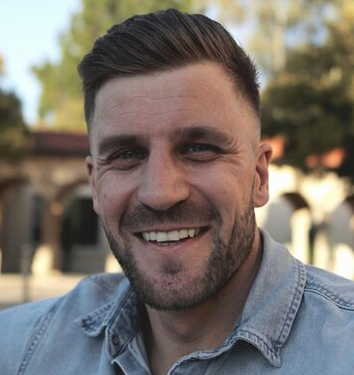
Ciaran is an Assistant Professor in Exercise Science and the Director of the Exercise Oncology Laboratory at UofSC. Dr. Fairman’s primary research focus is examining the impact of exercise, nutrition and supplementation interventions during and after cancer treatments. The purpose of this research is to see if we can prevent or reduce the side effects experienced with cancer and its treatments. Specific research areas include the manipulation of dose, frequency, volume or intensity of exercise to optimize clinically relevant outcomes in cancer patients; resistance training across the cancer continuum; nutrition/supplementation to augment training adaptations; exercise medicine and tumor biology.He has published over 50 peer-reviewed abstracts, manuscripts and book chapters in the areas of exercise science and nutrition. Dr. Fairman is also a strong advocate of the dissemination/translation of scientific research to a variety of audiences. He is the host of the REACH podcast (https://reach.fireside.fm/), where he discusses the latest research in exercise oncology.
Twitter: @ciaranfairman


Ms. Paige Farris has over 10 years of experience protecting human subjects in research, managing cancer prevention clinical trials, co-writing grants, implementing research projects in both university and Veteran Hospital settings as well as conducting statewide cancer prevention and control projects. Her research interests focus on building community capacity for research in a few different ways; first, by conducting trainings in community settings with the goal of familiarizing individuals and project teams to the research process so community researchers can begin their own studies more quickly, efficiently and ethically. She conducts trainings around the use of Evidence-Based Approaches and the importance of protecting human subjects participating in community-based research. Additionally, and in collaboration with OHSU’s IRB Chair, she runs the Community Research Navigation team at OHSU as a result of facilitating the development of a new approach in the review and approval of community research; impacting institutional policy along the way. Finally, by working closely with community researchers, Ms. Farris is interested in providing technical assistance to community researchers in the design of research implementation; assuring project outcomes are—sometimes creatively—met based on novel data collection tools or recruitment techniques. She has a commitment to improving health policy through research and values collaboration and research partnerships in order to improve healthcare for all people.

Dr. Tisha Felder is an Associate Professor in the College of Nursing at the University of South Carolina (UofSC) and Cancer Prevention and Control Program at UofSC Arnold School of Public Health. Dr. Felder’s research focuses on addressing racial and socioeconomic disparities in breastfeeding and breast cancer survivorship among African Americans. A South Carolina native, Dr. Felder received her BA in sociology from Wake Forest University (2001), Master of Social Work from University of Michigan-Ann Arbor (2002) and a PhD in Behavioral sciences from the University of Texas Health Science Center School of Public Health in Houston in 2010.

Dr. Fernandez is the Lorne Bain Distinguished Professor in Health and Medicine, a Professor of Health Promotion and Behavioral Sciences at the University of Texas, School of Public Health (SPH) in Houston, and Director of the Center for Health Promotion and Prevention Research (CHPPR). Her research has focused on cancer prevention and control among underserved populations. She has conducted studies that range from the development and evaluation of new interventions to the science of understanding and intervening to accelerate the use of evidence-based interventions in real- world settings. Dr. Fernandez has extensive experience in research translation and dissemination and implementation (D&I) research, and has been a member of the NIH Dissemination and Implementation Research in Health Study Section. She is a PI on two NIH Dissemination and Implementation Research in Health R01s, one to develop and evaluate an online decision support system for health program planners to facilitate adoption, adaptation, and implementation of evidence-based programs and another to validate a measure of organizational readiness. Her studies have identified important behaviors and determinants of adoption and implementation of cancer control interventions in clinical and community settings and have developed implementation strategies to increase adoption and implementation of evidence-based cancer control interventions. She is an internationally known expert on Intervention Mapping and co-author on the 4th edition of Planning Health Promotion Programs: An Intervention Mapping Approach (2016). She recently authored an article on the use of IM in implementation science: Implementation Mapping: Using Intervention Mapping to Plan Implementation Strategies. She also contributed two chapters to Advancing the Science of Implementation across the Cancer Continuum, (Chambers, Vinson, Norton, Eds.; 2018).

Dr. Renee Ferrari is a Research Scientist with the Carolina Cancer Screening Initiative at the University of North Carolina Lineberger Comprehensive Cancer Center and Adjunct Assistant Professor with the Department of Maternal and Child Health at the University of North Carolina Gillings School of Global Public Health. Her research interests include clinical preventive screening, maternal and child health services, implementation science, and qualitative research methods. Dr. Ferrari's current focus involves improving cancer screening in North Carolina’s vulnerable populations, specifically colorectal (CRC) and lung cancer. She is exploring patient, provider, and pharmacist perspectives on distributing colorectal cancer screening tests in pharmacies (versus the standard practice of a primary care office) under the premise that pharmacy-based distribution could remove patient barriers and increase CRC screening rates. Related work includes interviews with CRC screening-eligible patients to explore barriers and facilitators to CRC screening and follow-up. In addition, she is working on a project aimed at helping patients make informed decisions about lung cancer screening. Dr. Ferrari has more than a decade of experience in qualitative research aimed at improving health services for vulnerable populations. This experience includes designing studies, planning and executing research, developing data collection tools including interview and focus group guides, analyzing and interpreting data, and synthesizing and disseminating findings. Earlier work prior to academia involved consulting with non-profit organizations to assist them in developing and executing performance evaluation plans to improve the quality of their work with their target populations. Prior to that, she spent several years working within community-based organizations on the front lines of helping marginalized women transition from welfare to work.

Susan ‘Sue’ Flocke, Ph.D., is a Professor in the Department of Family Medicine at Oregon Health & Science University and currently holds the Kaiser Permanente Professor of Evidence-based Family Medicine endowed professorship. Her research is focused on enhancing preventive service delivery in the primary care setting, effective clinician-patient communication of health behavior change, and building linkages to community resources to facilitate behavior change. Current projects focus on reducing the harms from tobacco and implementing and evaluating systems change to use an eReferral to increase tobacco cessation support for socially disadvantaged patients. She enjoys mentoring and collaborating on transdisciplinary research initiatives.

Victoria Foster, MPH, joined NYU in July 2019 with more than 10 years of experience at the NYC Department of Health and Mental Hygiene, most recently in the role of Manager of Clinical-Community Program Linkages, City Research Scientist II, for the Primary Care Information Project. Ms. Foster directed, managed, and developed activities including the implementation and evaluation of policy, intervention, and strategic planning projects on chronic disease prevention and self-management through clinical-community linkages across multi-sector partnerships.

Rina Fox is an Assistant Professor in the University of Arizona College of Nursing and a member of the Cancer Prevention and Control Program at the University of Arizona Cancer Center. Her research is broadly focused on delineating how psychosocial processes impact adjustment to and coping with chronic illness, with an emphasis on symptom management and health related quality of life (HRQOL) in cancer. In her research she leverages eHealth strategies to increase access to efficacious interventions for underserved populations, as well as optimization methodologies to decrease the burden of behavioral intervention engagement. Examples of projects she leads include studies focused on developing and evaluating supportive care interventions to improve sleep among gynecologic cancer survivors and to promote stress management and HRQOL among young adult cancer survivors aged 18-39. She received a BA in Psychology and Spanish from Tufts University, an MPH in Epidemiology from the San Diego State University (SDSU) Graduate School of Public Health, and a PhD in Clinical Psychology from the SDSU / University of California, San Diego Joint Doctoral Program in Clinical Psychology. She completed an APA-accredited clinical internship at Rush University Medical Center, and a postdoctoral fellowship in cancer prevention and control at Northwestern University Feinberg School of Medicine.
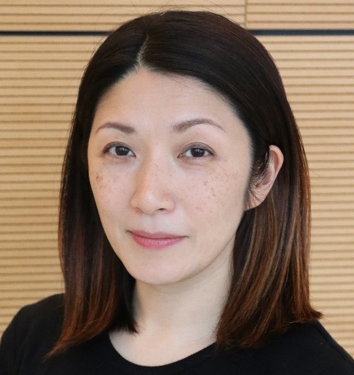
Dr. Mayuko Ito Fukunaga is a pulmonary critical care physician and an Assistant Professor of Medicine in the Division of Pulmonary, Allergy, and Critical Care Medicine at UMass Chan Medical School. Prior to joining UMass Chan, Dr. Ito Fukunaga was involved in the multiple QI project to improve access and quality of care for patients with lung cancer in rural communities and led a successful initiative to begin a lung cancer screening program as a physician champion. She currently facilitates a weekly multidisciplinary lung cancer screening conference at UMass Memorial Health. Her research focus is implementation of lung cancer screening using health informatics.

Dr. Garcia is an Assistant Professor in the Mel and Enid Zuckerman College of Public Health at the University of Arizona. He has extensive experience in short and long-term intervention trials in the areas of physical activity, diet, and weight management. He received his training from leading institutions and mentors in the field. Since 2006, Dr. Garcia has worked on numerous funded research projects, including research funded by industry, National Institutes of Health (NIH) and foundations. This includes working as a lifestyle interventionist/exercise physiologist in several clinical trials with overweight and obese adults, morbidly obese adults (Class II and III obesity), and individuals with type 2 diabetes.
Since arriving at the University of Arizona, his research has focused on the development of gender and culturally-sensitive weight loss interventions for Hispanic males. To support this effort, Dr. Garcia established “Nosotros Comprometidos a Su Salud -Committed to Your Health”, a program developed to support research through community service and partnering with underserved Tucson residents. Dr. Garcia also is the Assistant Director for Community Outreach & Engagement for the University of Arizona Cancer Center. In this role, he is currently examining the burden of obesity-related disease and cancers, such as non-alcoholic fatty liver disease and hepatocellular carcinoma, in Mexican-Origin adults.

Elizabeth ("Lizzie") Garcia, BSBM, a native of the Arizona - Sonora border has been employed at Mariposa Community Health Center since 2006. Throughout her time at Mariposa, Lizzie has had many roles including nutrition educator for elementary school aged children and youth prevention work for teens. She is currently the Program Prevention Manager, where she supervises various programs such as Nutrition Education, Diabetes Prevention, Tobacco Prevention, and The Summer Youth Institute. Lizzie enjoys music, movies, reading and socializing with family and friends. Lizzie is passionate about prevention, and works towards improving the health and wellness of Santa Cruz County.

Molly E. Garrone is a Senior Communications Coordinator at the Prevention Research Center on Nutrition and Physical Activity at the Harvard T.H. Chan School of Public Health, where she manages the communication and promotion of the Center and its research and events. For the Childhood Obesity Intervention Cost-Effectiveness Study (CHOICES) Project, a key project of the Center, Molly manages the development, implementation, and refinement of a communications strategy for disseminating and promoting the project’s research. She also leads the development and facilitation of communications trainings and workshops for state and local health agency staff and their partners and oversees the creation and promotion of communications materials and resources. For the CHOICES Community of Practice – a national network of public health practitioners – she oversees all planning and management of monthly “coffee chat” engagement opportunities and serves as the moderator of these events. Molly’s key interests include translating public health research through multimedia channels to reach a variety of audiences and providing strategic communications support for the advancement of public health research and initiatives. Molly received a Master of Arts degree from the collaborative Emerson College and Tufts University School of Medicine Health Communication program and a Bachelor of Arts degree in Communication from Fairfield University.

Karen Glanz, PhD, MPH is the George A. Weiss University Professor, Professor of Epidemiology and Nursing at the University of Pennsylvania (UPenn), and Director of the UPenn Prevention Research Center. Dr. Glanz has led complex multi-method research, evidence reviews and studies of cancer prevention and control, health and nutrition behavior, environments and policy for more than two decades. She has led several large, multi-site studies over the past fifteen years including being Principal Investigator for the successful CPCRN Collaborating Centers at Emory University and the University of Pennsylvania.

Camelia Gonzalez is a public health professional at Georgia State University (GSU). She received her undergraduate degree in Psychology from GSU and is currently completing her Master's in Public Health with a concentration in health promotion and behavior. Her research interests revolve around improving mental health outcomes and reducing health disparities in the Latinx community.
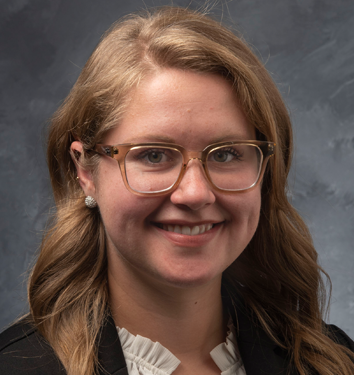
Dr. Jessica Gorzelitz (PhD, MS) is anm assistant professor of health and human physiology and an associate member of the Holden Comprehensive Cancer Center at the University of Iowa. She has previously trained at the University of Wisconsin-Madison, with a bachelor's in kinesiology-exercise and movement science, a master’s in population health, and a PhD in physical activity epidemiology. Dr. Gorzelitz also completed an internship at the University of Texas at MD Anderson Cancer Center, and in August 2022, completed the Cancer Prevention Postdoctoral Fellowship Program at the National Cancer Institute. Equal parts kinesiology and epidemiology applied to cancer survivorship, her research focuses on the importance of physical activity in cancer survivorship, using distance-based exercise intervention delivery and promoting the importance of muscle-strengthening exercise.


Dr. Yue Guan is a board-certified genetic counselor and social behavioral scientist. She holds a Masters of Science in Genetic Counseling and a PhD in Public Health from Johns Hopkins University. Her research work has focused on translational research in precision public health, including: communication research to develop and evaluate effective communications of genomic information; implementation and dissemination research to promote the adoption of evidence-based genomic applications in public health; and community engagement research to expand the reach of genomic screening programs to underserved minority populations. Dr. Guan is the co-director of the Emory Precision Public Health Research Program. She has also served on multiple national committees, including the American Board of Genetic Counselors (ABGC) Research Committee and the National Society of Genetic Counselors (NSGC) Practice Guideline Committee.

Heidi Haines is the Deputy Director for the University of Iowa Prevention Research Center for Rural Health. Ms. Haines has experience in protecting human subjects in research, managing research projects, co-writing grants and grant management. Her research experience includes rural/micropolitan health, working with community-based organizations, health equity, social determinants of health, program evaluation, community engagement, and CBPR. Additionally, she conducts center-level evaluation, communications and dissemination and training as needed. Ms. Haines works closely with advisory boards, health departments and community partners/stakeholders on the PRC’s and CPCRN’s community-based research projects.

Lirinda Hajdini, MPH is a public health professional specializing in program coordination, community engagement, and health communication. She currently serves as a Program Coordinator for the Cancer Prevention and Control Research Network (CPCRN) at the University of South Carolina. In this role, she supports project management, partner engagement, and dissemination efforts aimed at reducing cancer-related health disparities across South Carolina. Her interests include culturally responsive program design, chronic disease prevention, and improving access to preventive services among underserved communities. Lirinda has completed her Master of Public Health in Health Promotion, Education, and Behavior at the University of South Carolina in May 2025.

Heidi Hamann, PhD is a clinical health psychologist and cancer survivorship scientist focused on psychosocial outcomes, health equity, and community-based partnerships with FQHCs. Her research focuses on developing and adapting evidence-based interventions for cancer survivors.

Peggy Hannon is a professor at the University of Washington School of Public Health and director of the Health Promotion Research Center, a CDC Prevention Research Center. Dr. Hannon’s research focuses on dissemination and implementation research, with an emphasis on cancer screening and workplace health promotion. She develops and tests interventions and conducts evaluation studies in partnership with entities such as the American Cancer Society, CDC, and state and local departments of health to disseminate evidence-based cancer prevention and early detection practices to clinical and community settings.

James R. Hébert is Health Sciences Distinguished Professor of Epidemiology and Founding Director of the South Carolina Statewide Cancer Prevention and Control Program at the University of South Carolina, and Founder, President and Scientific Director of Connecting Health Innovations LLC (CHI). Dr. Hébert received his masters degree in Environmental Health from the University of Washington and his doctorate in Nutritional Epidemiology from Harvard University. Dr. Hébert is well known for his research into the role of diet in health and for developing the Dietary Inflammatory Index (DII®), which has revolutionizing research into chronic systemic inflammation as a cause of numerous chronic diseases ranging from diabetes to depression, cardiovascular disease, and many cancers.


Adriena Hernandez is currently a MSPH/PhD Health Behavior Health Promotion student in the Mel and Enid Zuckerman College of Public Health at the University of Arizona. Adriena’s areas of interest comprise of cancer survivorship, psychosocial and lifestyle interventions, and health disparities. She is interested in developing culturally tailored interventions for Latino survivors to improve health outcomes and quality of life. She has been and currently is involved in research including colorectal cancer prevention, cervical cancer prevention, psychosocial interventions, and nutrition interventions. After receiving her doctorate degree, she plans on developing and implementing interventions with cancer survivors living in the U.S.-Mexico border region.

Dr. Karen Hicklin is an Assistant Professor in the Department of Industrial & Systems Engineering at the University of Florida. Her research is primarily focused on mathematical modeling of stochastic systems with an emphasis on statistical and decision analysis as applied to healthcare and service environments. Before beginning her faculty appointment, she completed Postdoctoral Training in the Department of Statistics and Operations and Department of Health Behavior in the Gillings School of Global Public Health at the University of North Carolina at Chapel Hill. Her research interest include the data-driven approaches to model decision making for healthcare quality improvement. She focuses on using optimization methods (e.g., decision trees, simulation, Markov decision processes (MDPs), and Bayesian decision analysis) to provide solutions and policies for healthcare delivery. She received her PhD in Industrial Engineering from North Carolina State University, her MS in Mathematics and Statistics from Georgetown University, and her BS from Spelman College where she majored in mathematics.

Dr. Emily Hill is a Postdoctoral Fellow and registered dietitian nutritionist (RDN) at the University of Colorado Anschutz Medical Campus. Her research spans the translational research spectrum, with projects involving -omics approaches for the evaluation of nutrition interventions as well as studies investigating biobehavioral lifestyle modification programs for cancer prevention and control. She completed her MS and clinical training in Medical Dietetics and her PhD in Health and Rehabilitation Sciences with a specialization in Biomedical, Clinical, and Translational Science at The Ohio State University. She is currently planning the design and integration of a survivorship nutrition intervention within an established clinical exercise oncology program with support from the University of Colorado Cancer Center in an effort to improve evidence-based survivorship programming that is implemented clinically and disseminated broadly. Through this project, she is completing training in mixed-methods research and dissemination and implementation (D&I) science with the long-term goal to incorporate precision nutrition and D&I approaches into the design, delivery, and evaluation of interventions to improve health and reduce risk along the cancer control continuum.

Rachel Hirschey is an assistant professor in the school of nursing at the University of North Carolina, Chapel Hill and associate member of the UNC Lineberger Comprehensive Cancer Center. Her research focuses on designing and testing physical activity interventions to improve cancer outcomes and eliminate cancer disparities. Priorities in Dr. Hirschey’s work include: (1) co-creating interventions with key stakeholders; (2) guiding interventions with dual process behavior theories; (3) creating interventions to be scalable and sustainable in oncology practice; and (4) tailoring interventions for groups who experience cancer disparities.

Dr. Hoffman is a general internist who directs the Division of General Internal Medicine at the University of Iowa Carver College of Medicine. He also co-leads the Cancer Epidemiology and Population Science Program at the University of Iowa Holden Comprehensive Cancer Center. His areas of research interest include comparative effectiveness, epidemiology, systematic reviews, and decision making. Research topics include prostate, colorectal, and lung cancer screening and treatment for localized prostate cancers.

Dr. Terry Huang is Professor and Chair of the Department of Health Policy and Management, Director of the Center for Systems and Community Design, and Co-Director of the NYU-CUNY Prevention Research Center at the City University of New York Graduate School of Public Health and Health Policy. Previously, Dr. Huang played a leading role at the US National Institutes of Health (NIH) on the integration of systems science and public health. Dr. Huang has had a long history of research and policy leadership in the area of obesity and chronic disease prevention. In addition, he is passionate about systems-oriented community health, design for health, public health entrepreneurship, and strategies for collective impact. Dr. Huang has lectured and published extensively on these and other topics. In addition to his varied academic research endeavors, his current work also focuses on innovations at the intersection of business, design, and health, including the development of a new global public health entrepreneurship platform focused on early-stage solutions that target multiple UN sustainable development goals. Dr. Huang received the US Department of Health and Human Services Secretary’s Innovation Award in 2010 and the NIH Director’s Award in 2011. In addition, he received the National Cancer Institute Award of Merit in 2012 and was named Distinguished Scientist at the University of Nebraska Medical Center in 2013. Dr. Huang holds a PhD in Preventive Medicine and an MPH from the University of Southern California, an MBA from IE Business School (Madrid, Spain), and a BA in Psychology from McGill University (Montreal, Canada). He is Board Certified in Public Health (CPH) and is Fellow, Councilor, and Past Program Chair of The Obesity Society. He is also VP North America and a member of the executive board of the World Obesity Federation.

Ally Hucek is a doctoral student in the Department of Health Promotion, Education, and Behavior at the University of South Carolina’s Arnold School of Public Health. She serves as research assistant for the Cancer Prevention and Control Program and is a student affiliate of the university’s Office for the Study of Aging. Her research interests are in cancer and aging. She is also pursuing a Graduate Certificate in Aging through the Office for the Study of Aging while she is at the University of South Carolina.
Ally Hucek is a doctoral student in the Department of Health Promotion, Education, and Behavior at the University of South Carolina’s Arnold School of Public Health. She serves as research assistant for the Cancer Prevention and Control Program and is a student affiliate of the university’s Office for the Study of Aging. Her research interests are in cancer and aging. She is also pursuing a Graduate Certificate in Aging through the Office for the Study of Aging while she is at the University of South Carolina.

Soohyun Hwang is a PhD Candidate in the Department of Health Policy and Management at the University of North Carolina at Chapel Hill Gillings School of Global Public Health. She graduated from Ewha Womans University in Seoul, South Korea, and completed her Master of Public Health degree at the University of Michigan School of Public Health. Prior to pursuing her doctoral degree, she worked at the Ann Arbor VA Center for Clinical Management Research. Soohyun’s research interests focus on Implementation Science, organizational behavior, quality of cancer care, care coordination, shared decision-making, health disparities, and mixed methods. Her dissertation focuses on multilevel determinants of guideline-adherent active surveillance follow-up care for low-risk prostate cancer.

I’m a second-year PhD student at the Nell Hodgson Woodruff School of Nursing at Emory University. Before starting my doctoral training, I worked for seven years as a registered nurse at a tertiary hospital in South Korea. My research focuses on lung cancer in never-smokers, and I’m particularly interested in using AI and data science to improve detection, risk assessment, and survivorship care. I’m excited about opportunities to collaborate across clinical and data science fields.
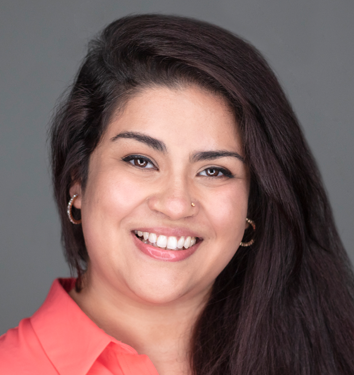
Jessica Y. Islam, PhD, MPH is a cancer epidemiologist and tenure-track Assistant Member at H. Lee Moffitt Cancer Center in the Cancer Epidemiology program. Dr. Islam's research focuses on describing and intervening on cancer care disparities across the continuum, at the intersection of infections and cancer. Through her research program, Dr. Islam aims to improve cancer outcomes among vulnerable populations, including racial/ethnic minorities and people living with HIV, using multi-level approaches, advanced epidemiological methods, and an equity-focused lens.

Nadia Islam, PhD, is an Associate Professor in the Department of Population Health at the NYU School of Medicine. Her research focuses on developing culturally relevant community-clinical linkage models to promote health equity in disadvantaged communities. She leads the cardiovascular disease and diabetes research track of the NYU Center for the Study of Asian American Health, a NIH-funded Research Center of Excellence dedicated to reducing health disparities facing Asian American communities; is Research Director of the NYU-CUNY Prevention Research Center (PRC); and co-directs the Community Engagement and Population Health Research core of NYU’s Clinical Translational Science Institute. She also serves as the principal investigator on several NIH- and CDC-funded initiatives evaluating the impact of community health worker (CHW) interventions on chronic disease management and prevention in diverse populations. Dr. Islam is a medical sociologist with a doctorate in Sociomedical Sciences from Columbia University. She serves on the American Diabetes Association Taskforce on Asian American, Native Hawaiian, and Pacific Islanders. Previously, she was on the board of the Public Health Association of New York and chaired the Asian Pacific Islander Caucus of the American Public Health Association. Dr. Islam is co-editor of Asian American Communities and Health (Jossey Bass Publisher, 2009). Her work has been featured in the American Journal of Public Health, Diabetes Care, and numerous other peer-reviewed journals.

Dr. Rachel Issaka is a gastroenterologist and clinical researcher focused on decreasing the mortality associated with colorectal cancer, with a special focus on medically underserved populations. Dr. Issaka’s research includes identifying, measuring and recommending new and improved approaches to screening and follow-up both in Seattle and across the U.S.

Emily is an MD-PhD student at the University of Iowa. Her research interest is in implementing interventions in clinical settings to improve healthcare access and quality. |
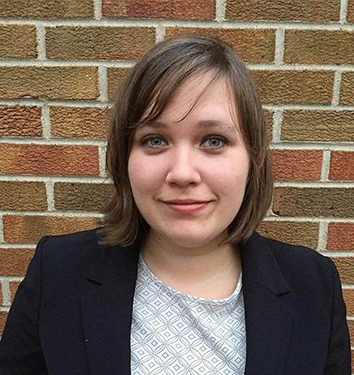
Katie Jones, MPH is the manager of the Comprehensive Cancer Control Program at the Iowa Department of Health and Human Services (Iowa HHS). She is the current past-chair of the National Association of Chronic Disease Directors’ (NACDD) Cancer Council. She previously worked as a diabetes prevention coordinator at Iowa HHS. Before joining Iowa HHS, Katie worked at a local county health department and the Iowa Cancer Consortium (Iowa's cancer coalition).


Dr. Christine Kava is an Acting Assistant Professor in the Department of Health Services at the University of Washington School of Public Health. Dr. Kava obtained her MA in Industrial-Organizational Psychology from Elmhurst College in 2012 and her PhD in Community and Behavioral Health from the University of Iowa in 2017. Her research interests include tobacco control, workplace health promotion, cancer prevention and control, implementation science, and health equity. Currently, Dr. Kava is leading a supplemental grant focused on understanding implementation of tobacco control evidence-based interventions at small worksites. Dr. Kava co-teaches an elective course on tobacco-related health disparities and social justice in her Department and is the current chair of the Cancer Prevention and Control Research Network’s Health Behaviors workgroup, where she is leading the development of a framework to address health disparities in cancer. Dr. Kava is also actively involved in equity, diversity, and inclusion (EDI) efforts; she is a member of her Department’s EDI committee and serves as the lead of the climate and structure subcommittee. When she is not working, Christine enjoys reading, cooking, and spending time with her husband and three cats.
Dr. Christine Kava is an Acting Assistant Professor in the Department of Health Services at the University of Washington School of Public Health. Dr. Kava obtained her MA in Industrial-Organizational Psychology from Elmhurst College in 2012 and her PhD in Community and Behavioral Health from the University of Iowa in 2017. Her research interests include tobacco control, workplace health promotion, cancer prevention and control, implementation science, and health equity. Currently, Dr. Kava is leading a supplemental grant focused on understanding implementation of tobacco control evidence-based interventions at small worksites. Dr. Kava co-teaches an elective course on tobacco-related health disparities and social justice in her Department and is the current chair of the Cancer Prevention and Control Research Network’s Health Behaviors workgroup, where she is leading the development of a framework to address health disparities in cancer. Dr. Kava is also actively involved in equity, diversity, and inclusion (EDI) efforts; she is a member of her Department’s EDI committee and serves as the lead of the climate and structure subcommittee. When she is not working, Christine enjoys reading, cooking, and spending time with her husband and three cats.



Dr. Nicole J. Kim is a Transplant Hepatology Fellow at the University of Washington. She obtained her MD/MPH degrees at the University of Washington and completed her Internal Medicine residency training at the University of California San Francisco, and her Gastroenterology and T32 research fellowship training at the University of Washington. She is interested in promoting health equity in hepatology through patient care and research. Her research interests include the development of effective interventions to better address disparities in liver cancer care, with a focus on early detection of hepatocellular carcinoma through timely surveillance and improving the patient experience related to liver cancer care.


Dr. Ko is a Professor of Family Medicine and Population and Public Health Sciences at the Keck School of Medicine (KSOM) at the University of Southern California (USC), and the Vice Chair for Research in the Department of Family Medicine at USC. She is a Full Member of the USC Norris Comprehensive Cancer Center and the inaugural Director of the Dissemination and Implementation Program at the Southern California Clinical and Translational Science Institute (‘USC CTSI’). She is a behavioral scientist with expertise in the development, testing, and evaluation of health communication strategies. Her work draws from the discipline of communication, marketing, social epidemiology, and social and behavioral sciences. Her research aims to understand community’s behavior within the socio-cultural context, develop interventions that will address those behaviors and translate knowledge through community-based participatory research. Dr. Ko received a PhD degree from the University of North Carolina Gillings School of Global Public Health. She is also a native speaker of both Spanish and Korean.
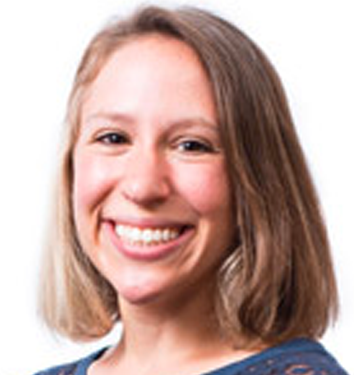

Julie Kranick has an MA in Geography from Hunter College and a MPhil in Epidemiology from Columbia University Mailman School of Public Health. She previously worked on the NCI funded Metropolitan New York Registry of families at increased risk of breast cancer. Julie is a program manager with the Section for Health Equity, Department of Population Health at NYU Grossman School of Medicine where she has engaged in health disparities, cancer, aging, and community-based participatory research, utilizing mixed-methods and large datasets.

Simona C. Kwon, DrPH, MPH, is an Associate Professor in the Section for Health Equity, Departments of Population Health and Medicine at the NYU School of Medicine. Dr. Kwon is a social epidemiologist whose research examines the social and cultural contextual factors that influence health and health outcomes among racial and ethnic communities across the lifespan and with a particular focus on Asian Americans. Using a social determinants of health framework, Dr. Kwon engages in the implementation and evaluation of evidence-based strategies in community settings with a focus on assessing cultural relevancy and impact, and identifying innovative channels to disseminate and translate findings and outcomes for priority end-users. She works collaboratively and in partnership with multi-sectorial coalitions made up of local and national community-based organizations, governmental agencies, service delivery organizations and multi-disciplinary researchers to address community-level health disparities. Dr. Kwon directs the NIH National Institute on Minority Health and Health Disparities-funded, Center for the Study of Asian American Health and serves as the Director of the Integrating Special Populations Unit of the NYU-H+H Clinical Translational Science Institute, Associate Director of the Community Outreach and Engagement Core of the NYU Perlmutter Cancer Center, and the Associate Director of the Section for Health Equity. She was awarded her Master of Public Health in Epidemiology from Yale University, her doctorate in the Division of Sociomedical Sciences from the Mailman School of Public Health, Columbia University, and served as a W.K. Kellogg Community Scholars Post-doctoral Fellow at the Johns Hopkins Bloomberg School of Public Health in the Department of Health Behavior & Society.


Erin holds a Masters of Interdisciplinary Studies in Medieval Literature and History at the University of York, UK, and have previously worked at UNC as an administrative professional in Oncology and Health Policy and Management. She is a Research Project Manager in the Lineberger Cancer Outcomes Research Program under the direction of Katherine Reeder-Hayes and Stephanie Wheeler. Her research interests include reducing racial and geographical disparities in cancer treatment, patient reported outcomes in breast and colorectal cancer populations, and the intersection of social determinants of health and cancer survival.

Amy Leader is a professor in the Division of Population Science, Department of Medical Oncology at Thomas Jefferson University. She has a secondary appointment in the Jefferson College of Population Health where she teaches courses in the Master of Public Health program. She is the Associate Director for Community Outreach and Engagement at the Sidney Kimmel Cancer Center at Jefferson, an NCI-designated comprehensive cancer center. In this role, she leads the Office of Community Outreach and Engagement to ensure a meaningful, bi-directional relationship between the cancer center and the communities it serves. Dr. Leader leads a portfolio of externally funded research related to issues of cancer prevention and early detection, community-engaged research, and health communication, particularly as it relates to mitigating health disparities.

Bekka Lee is a Lecturer on Social and Behavioral Sciences at the Harvard T.H. Chan School of Public Health. Bekka is also the Director of the Community Engagement Program at Harvard Catalyst: Harvard's Clinical and Translational Science Center. Her research focuses on designing and evaluating community-based interventions that translate into real world policy and practice change, focusing in particular on investigating the contextual factors that impact effective implementation and promote health equity. She has spent 20 years working at the Prevention Research Center on Nutrition and Physical Activity, where she conducts research and evaluation with partners at the Boston Public Health Commission, Massachusetts Department of Public Health, and YMCA. Bekka also conducts cancer prevention research with community health centers across Massachusetts.
She teaches courses on community-engaged research, mixed methods, program planning, and evaluation and co-directs the Leaders in Health community training program.

I am an assistant professor at the OHSU School of Nursing following pre- and post-doctoral training in oncology symptom science and palliative care at Emory University. My program of research aims to improve symptom experience and quality of life for individuals with cancer and their families during and after cancer treatment. I have investigated the biopsychosocial mechanisms through which cancer and its treatment affect quality of life, from physical symptoms to sexual health, particularly among women, older adults, and patients with advanced cancer. Currently, my research focuses on psychosocial adjustment, including sexual lives and intimate relationships, in the context of cancer survivorship.

Dr. Hyejoong Marie Lee recently earned a Doctor of Pharmacy (PharmD) degree from the Massachusetts College of Pharmacy and Health Sciences in Boston, with prior training in Statistics in South Korea. Marie's research interests include health outcomes research, pharmacoepidemiology, and pharmacoeconomics, with a focus on cancer and chronic disease prevention. She is passionate about applying real-world evidence to inform health policy and improve patient care.

Stephanie Lee is a PhD candidate in the Nell Hodgson Woodruff School of Nursing at Emory University. Her research is firmly rooted in her clinical work as an oncology nurse and focuses on improving health equity for cancer survivors from rural areas, particularly by understanding and addressing financial hardship through qualitative methods. Ultimately, Stephanie’s goal is to improve cancer care and overall quality of life for rural cancer survivors, while informing and supporting community-focused program and policy development.


Becky Lee is the project director for the CPCRN Coordinating Center located at the University of North Carolina at Chapel Hill. She is certified as a Project Management Professional (PMP) through the Project Management Institute (PMI), the leading professional association for project management. Becky has an appointment through the UNC Center for Health Promotion and Disease Prevention. Ms. Lee has expertise in project management of complex, multicenter collaborative research projects. She is responsible for the day-to-day coordination, implementation, and management of activities related to the CPCRN Coordinating Center. Becky holds a bachelor of science degree in chemical engineering from Clemson University and a master of science degree in chemical engineering from Georgia Tech. She holds Graduate Certificates in both Public Health Leadership and Core Public Health Concepts from the UNC Gillings School of Global Public Health. Becky has worked in the Coordinating Center since 2015.

Dr. Jennifer Leeman is an associate professor in the UNC School of Nursing and an implementation scientist with a focus on primary prevention in community-based settings. She currently is PI of a CDC-funded contract, “Assessing Awareness and Use of School Health Tools and Resources” that is applying mixed methods to evaluate how schools use four tools that the CDC disseminates to implement school health interventions (2015-2017). She directs the Dissemination Core of UNC’s CDC-funded Prevention Research Center and is faculty in the UNC CTSA’s Dissemination & Implementation Methods unit.
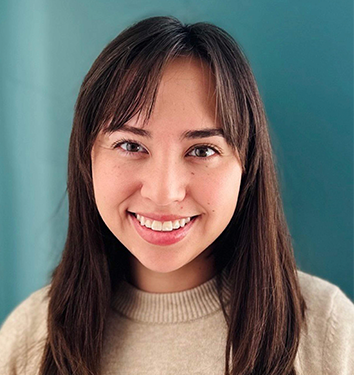

Westley is the Project Director for the Cancer Prevention and Control Research Network at the Rocky Mountain Prevention Research Center in the Colorado School of Public Health. She provides support and advisement to the Colorado Cancer Screening Program strategic planning and clinical quality improvement efforts, and previously was the program's Patient Navigation Manager. Westley has been working in cancer prevention since 2015. After earning her Master of Public Health in Community and Behavioral Health from the Colorado School of Public Health, she has had positions with Denver Health, the Colorado Department of Public Health and Environment, and Children's Hospital Colorado, all with a focus on improving quality, efficiency, and equity in the delivery of health care. She is interested in changing systems to better meet the needs of patients, improving access for the medically underserved, working collaboratively across multiple facets of the health care system, and using innovative techniques to improve health and well-being for populations. Outside of work, she enjoys spending time with her two children, her husband, and her dog, typically in the beautiful outdoors.

I am an Assistant Professor at Emory University's Nell Hodgson Woodruff School of Nursing and a member of the Cancer Prevention and Control research program at Winship Cancer Institute. My research interests focus on cancer symptom science and management, innovative interventions (e.g., AI/technology-based interventions), dyadic approach (patients and caregivers), and health equity.
I am an Assistant Professor at Emory University's Nell Hodgson Woodruff School of Nursing and a member of the Cancer Prevention and Control research program at Winship Cancer Institute. My research interests focus on cancer symptom science and management, innovative interventions (e.g., AI/technology-based interventions), dyadic approach (patients and caregivers), and health equity.
I am an Assistant Professor at Emory University's Nell Hodgson Woodruff School of Nursing and a member of the Cancer Prevention and Control research program at Winship Cancer Institute. My research interests focus on cancer symptom science and management, innovative interventions (e.g., AI/technology-based interventions), dyadic approach (patients and caregivers), and health equity.

Dr. Lopez-Pentecost is a Postdoctoral Research Fellow at the University of Miami CTIDE-T32 program. She obtained her bachelor's and master's degrees in Nutritional Sciences and her PhD in Clinical and Translational Sciences at the University of Arizona. Dr. Lopez is a Registered Dietitian Nutritionist (RDN) focusing her research training on lifestyle medicine for cancer survivors during and after their cancer treatment and cancer health disparities.

Jan Lowery, PhD, MPH is a cancer epidemiologist and public health practitioner with broad experience implementing cancer prevention and control programs in diverse settings including primary care, public health, and healthcare systems. In her current (and new) role as Assistant Director of Dissemination and Implementation (D&I) in the Office of Community Outreach and Engagement at the CU Cancer Center, Jan will be continuing these efforts across Colorado with a focus on engaging communities in all aspects of the center's work. In her faculty role in the CO School of Public Health, Jan is charged with developing a new course in D&I for MPH students. The CPCRN Scholars will provide formal training in D&I (that Jan does not have) that will help her create this course and establish a network of practitioners with whom she may partner on future research and scholarly projects.

Dr. Karen Lutrick is an assistant professor in the Department of Family & Community Medicine in the College of Medicine at the University of Arizona and the Director of the National Foundation of Emergency Medicine. She has research expertise in disaster response research, clinical trials and research operations, Latinx health disparities, and is building expertise in dissemination and implementation science. In addition to research experience, she is an experienced educator and education researcher, working in the community and within higher education, and recently translating that experience into assisting emergency medicine physicians in the development of research skills.
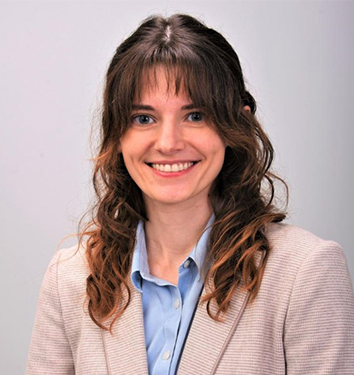
Ms. Lynam is a public health researcher with experience and interest in mixed-methods research, community engagement and collaboration, social determinants of health, and intervention development, implementation, and evaluation. She serves as a Public Health Program Associate at the Rollins School of Public Health at Emory University and is the Project Director for Emory CPCRN.

Purnima Madhivanan is an Associate Professor in Health Promotion Sciences at the Mel & Enid Zuckerman College of Public Health at University of Arizona, Tucson. A physician by training, she completed her MPH and PhD in Epidemiology from the University of California, Berkeley. She is the Director of the Global Health Training Program at University of Arizona, Tucson and serves as a co-PI for the Global Health Equity Scholar consortium in collaboration with Stanford, Yale and University of California, Berkeley.
For the past 20 years, her research has focused on disadvantaged populations, elucidating the dynamics of poverty, gender, and the environmental & social determinants of health, in particular the impact on women and children living in rural and limited resource communities. Dr. Madhivanan’s work focuses on addressing the systemic inequities that put women at-risk for poor health outcomes. Her current research is examining the intersection of infectious diseases and cancer, vaginal microbiome, global health, diagnostics and health disparities. Her work has resulted in more than 150 peer-review publications. She continues to develop novel lines of research and has been supported by foundations, biotechnology companies, federal and international funding organizations. Dr. Madhivanan serves as an advisor to a number of state departments of Public Health, non-profits as well as governmental research organizations.

Dr. Sukh Makhnoon is an Assistant Professor at the Peter O’Donnell Jr. School of Public Health and Simmons Comprehensive Cancer Center at UT Southwestern Medical Center. Dr. Makhnoon is a genetic epidemiologist who focuses on public health genomics and the translation of genomic applications into clinical practice. As an interdisciplinary researcher, she has developed a research program applying genetics, behavioral science, epidemiology, health services, and clinical perspectives to improve utilization of cancer prevention and control innovations across the cancer continuum, with a focus on uncertain and reclassified genetic test results. Her research interests include uncertainty related to genomic sequencing, genomic variant reclassification, and patients’ experiences with genomic sequencing. She contributes to a range of empirical projects focused on clinical genomics translation and precision medicine approaches to the prevention of cancer in diverse patient populations. Prior to joining UTSW, Dr. Makhnoon was a postdoctoral fellow at UT MD Anderson Cancer Center in the Division of Cancer Prevention and Population Sciences. She received her PhD in Public Health Genetics and MS in Genetic Epidemiology from the University of Washington in Seattle.

Adriana Maldonado is an Assistant Professor in the Department of Health Promotion Sciences at the University of Arizona (UArizona) Mel and Enid Zuckerman College of Public Health. Dr. Maldonado is committed to research that identifies and addresses the root causes of health inequities faced by the U.S. Latino population. Her research is shaped by her multidisciplinary background – from masters-level training in experimental psychology at California State University San Marcos, doctoral training in community engaged research at the University of Iowa, and post-doctoral training in cancer prevention and control.
Dr. Maldonado’s recent work is focused on understanding the influence of social, contextual, and environmental factors on chronic diseases in U.S. Latinos. During her doctoral training, she utilized a mixed-methods approach to understand how social and environmental determinants of cardiovascular health influence hypertension management in Latinos in established vs. new Latino destination states. In 2022, Dr. Maldonado joined “Nosotros Comprometidos a Su Salud – Committed to your Health”, a UArizona public health program that aims to reduce health disparities faced by the Latino community in the Southern Arizona region. As an investigator of “Nosotros Comprometidos a Su Salud”, Dr. Maldonado is leading a community-based participatory research (CBPR) project that aims to understand how the built and social context as well as allostatic load impact migrant and seasonal farmworkers’ risk for non-alcoholic fatty liver disease (NAFLD), a risk factors for cardiovascular disease. Her areas of focus include place-based health disparities, psychosocial determinants of health, stress, chronic diseases, cardiovascular disease, and cancer control and prevention.

Namoonga Mantina’s dual upbringing in Zambia and the US instilled in her a deep sense of service to the wellbeing of others. She currently serves as the Research Program Administrator for the Office of Community Outreach and Engagement at University of Arizona Cancer Center, supporting efforts to alleviate the burden of cancer in the Southern Arizona community. Namoonga obtained her MS in Public Health from the University of Arizona College of Public Health in December 2021, her MBA from Eller College of Management in May 2022, and is slated to obtain her Doctorate in Public Health in 2024. With her public health training and business acumen, Namoonga aspires to develop and facilitate sustainable strategies that champion health equity solutions for underserved communities - locally and globally.

Macary Marciniak is an Associate Professor in the UNC Eshelman School of Pharmacy at the University of North Carolina at Chapel Hill (UNC). She is committed to advancing pharmacist-provided care in community-based settings. She serves as the Director of the PGY1 Community-based Pharmacy Residency Program, which includes innovative practice sites across the state and is one of the oldest and largest programs of its kind in the nation. She also directs a Community-based Mental Health Fellowship, in partnership with UNC Campus Health and Counseling and Psychological Services. During her tenure at UNC, she has had the distinct pleasure to mentor and precept over 120 community-based residents and fellows.
In addition to her teaching and administrative roles at UNC, Macary serves as the Pre-Pharmacy Advisor and an Advisor for Phi Delta Chi (PDC) Professional Pharmacy Fraternity, the Carolina Association of Pharmacy Students (CAPS) and the Pre-Pharmacy Club. Macary is a member of the Board of Directors of the Pharmacy Leadership and Education Institute (PLEI) and loves serving as a facilitator for PLEI leadership programming. She is a proud recipient of the PLEI Albert B. Prescott Pharmacy Leadership Award. Macary is a current member of the Board of Directors for the North Carolina Association of Pharmacists (NCAP) and a former Vice Chair and member of the Board of Pharmacy Specialties (BPS) Ambulatory Care Pharmacy Specialty Council.
Macary received her Doctor of Pharmacy degree with Honors from UNC and completed a PGY1 Community-based Pharmacy Residency Program with the University of Maryland. Macary was a faculty member at Albany College of Pharmacy in Albany, New York before returning to her alma mater. Macary is a national faculty member for the American Pharmacists Association (APhA) Pharmacy-based Immunization Delivery Certificate Training Program and a trainer for the National Alliance of State Pharmacy Associations (NASPA) Pharmacy-based Point-of-Care Test and Treat National Certificate Program. Macary has completed certificate training programs in diabetes, immunizations, medication therapy management, mental health first aid, point-of-care testing, self-care and tobacco cessation. Macary is proud to be an immunizing pharmacist and has trained thousands of student pharmacists and pharmacists nationwide to serve as immunizing pharmacists. Macary is also a member of the American Association of Colleges of Pharmacy (AACP), the American College of Clinical Pharmacy (ACCP), American Society of Health-System Pharmacists (ASHP) and Christian Pharmacists Fellowship International (CPFI) and Phi Lambda Sigma Pharmacy Leadership Society (PLS).

Dr. Mazor is an Instructor and T32 Cancer Prevention and Control Fellow in the Division of General Internal Medicine at Icahn School of Medicine at Mount Sinai. Her research investigates cancer survivorship and early palliative care in vulnerable populations. She has a particular interest in developing and implementing culturally sensitive, community-based interventions to mitigate poor psychosocial outcomes in Black and Latinx women with advanced breast cancer.
She is an experienced oncology nurse who is committed to improving quality of life in cancer patients and family caregivers. She has served as an investigator of several studies examining social determinants of symptom burden and distress in female cancer survivors and evaluation of models of care that promote equity.

Clare Meernik, PhD, MPH is a CPCRN Scholar Alumni and Postdoctoral Associate at the Duke University of School of Medicine. Dr. Meernik is a cancer epidemiologist with research interests in cancer survivorship and outcomes, specifically among adolescents and young adults. She intends to focus her career on identifying and addressing barriers to equitable, evidence-based survivorship care and optimizing long-term cancer outcomes related to survivors’ physical, cognitive, and psychosocial needs. Dr. Meernik received her PhD from the University of North Carolina at Chapel Hill Gillings School of Global Public Health. Her dissertation examined fertility preservation among adolescent and young adult women with cancer in North Carolina, including the impact of fertility preservation on delay to cancer treatment and reproductive success after use of assisted reproductive technology.

Stephanie C. Melkonian, PhD is an epidemiologist in the Division of Cancer Prevention and Control’s Epidemiology and Applied Research Branch. Dr. Melkonian continues ongoing efforts to comprehensively describe data regarding cancer incidence and mortality in American Indian/Alaska Native (AI/AN) populations. Given higher cancer incidence rates for certain cancers in AI/AN populations, Stephanie directs her efforts towards identifying sources of cancer-related disparities, evaluating the role of modifiable cancer risk factors, and identifying culturally appropriate intervention, prevention, and screening programs for this underserved population. She also provides technical assistance to the Indian Health Service, tribal epidemiology centers, and other tribal health organizations.

Dylan received his bachelor’s degree in BioHealth Sciences from Oregon State University in 2018. He received his master’s degree in Public Health with a focus in Health Policy & Management from the University of Arizona in 2020 and is currently enrolled in the PhD program in epidemiology where his research focuses on skin cancer prevention through education and behavioral interventions. Dylan has experience working on cancer prevention as the Outreach Coordinator for the University of Arizona Skin Cancer Institute and as a public health intern with the Arizona Department of Health Service’s SunWise Program.

Deborah is a Senior Project Coordinator with the Section for Health Equity within the Department of Population Health at NYU Grossman School of Medicine. She is also a doctoral candidate in the Health Equity and Social Justice track at the Johns Hopkins Bloomberg School of Public Health. Broadly, her research interests include culturally-meaningful community-driven projects that confront health disparities and advance health equity within and across Asian American communities. She received her BA in Psychology at Wheaton College (IL) and MPH from Columbia University’s Mailman School of Public Health, Department of Sociomedical Sciences with a concentration in Child, Youth, and Family Health.

Dr. Mody is a practicing thoracic surgeon and a health services researcher focused on improving the quality of perioperative care delivery. Her patients have diverse clinical and social risk factors and undergo high-risk surgeries for curative intent of cancer and chronic lung disease. Health-related quality of life (HRQOL) is negatively impacted by these surgeries and is increasingly a focus for patient-centered research interventions now that survival for this cohort is improving. However, without robust implementation science approaches, interventions to address HRQOL perioperatively will not be widely and sustainably applied. Her current work is focused on reducing post-discharge complications and improving postoperative HRQOL using patient-reported outcomes (PRO) survey tools to track, report, and manage postoperative symptoms. She is investigating the impact of these PRO systems on clinical outcomes as well as the barriers and facilitators of implementation including at the patient and provider level.

Patty Molina, BS, the lead MCHC investigator, is Senior Director of Community Health Services, and has overseen Juntos Contra al Cancer (Together Against Cancer) cancer screening and care navigation support programs over the past 15 years. She facilitates partnerships with the AzPRC and other UArizona faculty on collaborative research projects including grants in childhood obesity, hearing loss and sleep.

Elaine Morrato, DrPH, MPH, CPH is a professor in Health Systems, Management and Policy and Associate Dean for Public Health Practice at the Colorado School of Public Health, University of Colorado Anschutz Medical Campus. Trained as an epidemiologist and board-certified in public health, her passion is accelerating the translation of evidence into practice with a particular focus on preventive care and drug safety. She directs the Innovation-Bioentrepreneurism and Dissemination Science programs for the NIH-supported Colorado Clinical & Translational Sciences Institute. She regularly advises the U.S. Food and Drug Administration on issues of risk communication and management and is currently a visiting scientist with FDA in the Office of Surveillance and Epidemiology, Center for Drug Evaluation and Research. Her past experience as an R&D manager at Procter & Gamble with responsibility for commercializing new OTC and prescription drugs informs her research and public health practice.

Kristin Morrill, PhD is a current NCI-funded T32 Cancer Prevention and Control Postdoctoral Fellow at the University of Arizona Cancer Center. In 2016, Dr. Morrill began her PhD in the University of Arizona Department of Nutritional Sciences as a USDA National Needs Fellow. The goal of her dissertation was to gather preliminary data needed to develop a culturally-sensitive, genotype-informed intervention to treat and/or prevent the progression of nonalcoholic fatty liver disease in Mexican-origin women. As a part of her dissertation, Dr. Morrill received training in the following areas: conducting systematic reviews; conducting gene-diet interaction analyses; and mixed-methods research. Dr. Morrill’s research currently involves better understanding factors that influence cancer treatment delays among Hispanic/Latino/a cancer patients. Additional research interests include precision-based treatment approaches and the role of psychosocial factors in cancer survivorship.

Alexandra B. Morshed, PhD, MS, is an implementation scientist with a substantive focus on prevention of weight-related chronic disease, including obesity, diabetes, and cancer. She has more than ten years of experience in public health research and practice, primarily focused on implementing interventions in vulnerable populations, policy adoption, and capacity building and knowledge expansion in dissemination and implementation (D&I) science. Her research largely utilizes a D&I lens based on the recognition that research-to-practice gaps exist and contribute to disease prevalence and disparities. She is committed to equitable partnership with communities and stakeholders. She carried out her doctoral and postdoctoral training at Washington University in St. Louis and earned a master of science from Wageningen University in the Netherlands.
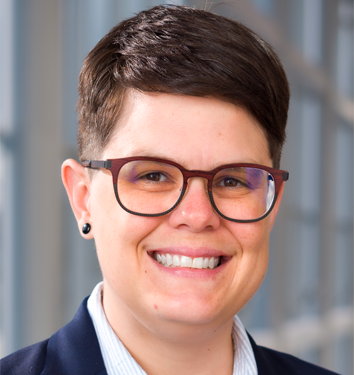
Megan A. Mullins, PhD, MPH is a cancer care delivery researcher and tenure-track assistant professor at the Peter O’Donnell Jr. School of Public Health and Harold C. Simmons Comprehensive Cancer Center at UT Southwestern Medical Center. Dr. Mullins’ research program is focused on improving the quality and equity of cancer care for sexual and gender minorities and people with advanced stage cancers. Dr. Mullins uses mixed-methods approaches for care delivery research to inform the implementation of evidence-based interventions. She has specific expertise in the analysis of large population-based and medical claims data, in-depth interviewing, surveying patients and providers, and health disparities research.

Karly M. Murphy, PhD is an Assistant Professor of Psychology at East Carolina University, where she is part of the Clinical Health doctoral faculty. She earned her PhD in Clinical Psychology at Seattle Pacific University while also working as a clinical research assistant at Fred Hutchinson Comprehensive Cancer Center. Dr. Murphy then completed NCI-funded postdoctoral fellowships focused on cancer prevention and control at Northwestern University Feinberg School of Medicine and Wake Forest School of Medicine. Her research focuses on understanding and addressing the unique psychosocial needs of adolescent and young adult cancer survivors. She is particularly interested in the development of remotely delivered interventions given their high potential for widespread dissemination. Currently, she is the PI of an NCI-funded study in which she is taking an iterative user-centered design approach to develop an engaging digital tool to help AYA cancer survivors cope with symptoms of depression.

Catherine S. Nagawa is a behavioral health researcher with expertise in designing and implementing health behavior change interventions. She focuses on improving tobacco cessation rates in high-risk populations, using mixed methods to explore interpersonal and intrapersonal strategies that promote sustained health behavior change. Her work often incorporates community-based approaches and considers the role of organizational and contextual factors in achieving successful outcomes
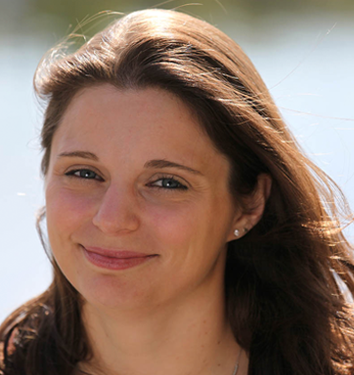
Sarah Nash, PhD, MPH, CPH, is an Assistant Professor of Epidemiology at the University of Iowa College of Public Health, a full member of the Holden Comprehensive Cancer Center, and co-investigator at the Iowa Cancer Registry. Dr Nash’s research bridges population-based data science and community-based work to address cancer disparities, primarily among American Indian and Alaska Native people, and rural residents. Dr. Nash has broad training in cancer prevention, cancer surveillance, nutrition epidemiology, and community engagement, and strives to combine these interests in a diverse research program that directly benefits communities. Prior to her current appointment at the University of Iowa, Dr. Nash was the Director of Cancer Surveillance, and PI of the SEER Alaska Native Tumor Registry at the Alaska Native Tribal Health Consortium. She received her BA (Hons) in Archaeology and Anthropology from Cambridge University in 2007, PhD in Biological Sciences from the University of Alaska Fairbanks in 2013, and MPH from Johns Hopkins Bloomberg School of Public Health in 2014. She completed her postdoctoral training with the NCI’s Cancer Prevention Fellowship Program.

Gila Neta, PhD, MPP is an epidemiologist and program director for Implementation Science in the Office of the Director in the Division of Cancer Control and Population Sciences (DCCPS) at the National Cancer Institute (NCI). Dr. Neta serves as the NCI scientific lead for the trans-NIH funding announcements in Dissemination and Implementation Research in Health. She also leads the Global Implementation Science for Equitable Cancer Control initiative and develops research and training activities related to implementation science across the NCI and National Institutes of Health. Dr. Neta is Co-Chair of the NIH-sponsored Annual Conference on the Science of Dissemination and Implementation. She also chairs the NIH D&I working group, a trans-NIH initiative providing leadership and vision for implementation science across the NIH. She has a secondary appointment within the Epidemiology and Genomics Research Program and the NCI Center for Global Health.
Prior to joining DCCPS in May 2013, Dr. Neta conducted postdoctoral research within the Division of Cancer Epidemiology and Genetics in the Radiation Epidemiology Branch, focusing on the potential unintended health effects of radiologic medical technologies. Dr. Neta received her Master of Public Policy degree at the University of California at Berkeley in 2001, and her Doctorate in Epidemiology from Johns Hopkins University Bloomberg School of Public Health in 2009. She conducted her doctoral dissertation work at the Eunice Kennedy Shriver National Institute for Child Health and Human Development.


Dr. Nicole Novak is a Assistant Research Scientist in the Prevention Research Center and the Department of Community and Behavioral Health. Dr. Novak uses epidemiologic, community-engaged, and mixed methods to study community and policy-level factors that shape the health of immigrant, Latino and rural communities. Dr. Novak has contributed to the evaluation of PRC’s core research project, Active Ottumwa. She is also partners with the Active Ottumwa Community Advisory Board to conduct in-depth qualitative research about social and economic factors shaping well being for Ottumwa residents.

Tomas Nuño, PhD is a Research Assistant Professor in the Department of Emergency Medicine with a joint appointment in the Division of Public Health Practice and Translational Research in the Mel and Enid Zuckerman College of Public Health. Dr. Nuño completed his PhD in Epidemiology in August 2011 at the University of Arizona. Upon completion of his doctorate, Dr. Nuño was awarded a postdoctoral research fellowship with the Arizona Area Health Education Center-funded Clinical Outcomes and Comparative Effectiveness Research Academic Fellowship Program. The goal of the fellowship program was to provide training in clinical outcomes and comparative effectiveness research, with a specific focus on primary care for rural and underserved patients, families, and communities in Arizona. In September 2012, Dr. Nuño received a three-year National Cancer Institute Center to Reduce Cancer Health Disparities postdoctoral fellowship grant as part of the University of Arizona Cancer Center R25T Cancer Prevention and Control Translational Research Training Program. In September 2017, Dr. Nuño received a three-year junior faculty diversity supplement grant from the National Heart, Lung, and Blood Institute to explore tools and practices to decrease cardiovascular disease (CVD) and complications among Hispanic diabetics in Arizona.
Dr. Nuño’s program of research addresses the issues of chronic disease disparities among underserved populations. Particular areas of research include diabetes and CVD prevention and outcomes among Hispanics in the United States. The over-arching aim of his program of research is to identify disparities in health outcomes and to find methods to prevent and control chronic diseases among Hispanics and other underserved populations. He has expertise with population-based research and utilization of large national databases, including the Behavioral Risk Factor Surveillance System, the Surveillance, Epidemiology, and End Results Program, and the Healthcare Cost and Utilization Project. He has a growing field of work and research with behavioral epidemiology and community-based interventions. Dr. Nuño enjoys working with diverse faculty, fellows, residents, and students in a transdisciplinary team-science approach.

Dr. Mary Helen O’Connor's is teaching, research, and community advocacy work focus on the lives and experiences of refugees and immigrants. She has created and taught courses considering the political, cultural, and psychological consequences of forced migration. She works closely with community residents, partners, organizations, and local government to address the needs of the “most diverse square mile in America” as the city of Clarkston, her home campus, was dubbed by Time Magazine.
She co-founded a student mentoring program for refugee students, MINA (Mentoring Initiative for New Americans) with Dr. Heval Kelli, a Syrian refugee and Georgia State alum. In 2018, she received the Carl V. Patton President’s Award for Community Service and Social Justice Outstanding Faculty Award, and the George M. Sparks Award, recognizing GSU’s unsung heroes who exemplify a willingness to go the extra mile with good humor and perseverance.” In 2018, O’Connor was named a “Daily Point of Light” by Points of Light, the world’s largest organization dedicated to volunteer service established by President George H.W. Bush during his presidency. The award recognizes extraordinary volunteers who are donating their time and talent to better their communities. She is a recipient of the NISOD Teaching Excellence Award, led the college-wide reading program for many years, and actively publishes and presents on refugee and migration issues. She received her B.S. from the University of Florida’s College of Journalism and Communication, her master’s degree in English and English education from Agnes Scott College, and her doctoral degree in Rhetoric and Composition from Georgia State University.

Meghan O’Leary earned her PhD from the Department of Health Policy and Management at the UNC Gillings School of Global Public Health in September 2022 where she minored in Decision Sciences and Outcomes Research. She is also a trainee in the Cancer Care Quality Training Program at the UNC Lineberger Comprehensive Cancer Center. For her dissertation, Dr. O'Leary explored the use of systems science tools for informing decision-making about the implementation of colorectal cancer screening interventions. She previously completed her BA in Anthropology and American Studies at Northwestern University, and her MA in Anthropology at the University of New Mexico.

Olufeyisayo “Feyi” Odebunmi (she/her) is Nigerian and a licensed pharmacist in Nigeria. She received her Master of Public Health (MPH, 2020) in Health Services Management and Policy from East Tennessee State University (ETSU). Feyi is a third-year doctoral student in the department of Health Policy and Management, minor concentration in Quality and Access at the University of North Carolina, Chapel Hill. She is currently in the dissertation proposal phase of her program, where she would like to explore disparities in mental health care and the associated outcomes in patients with cancer and mental health disorders. Feyi's interests encompass healthcare disparities, cancer control and prevention, women’s health, program evaluation, and quality improvement. She is delighted to be among the third cohort of CPCRN scholars and grateful for the opportunity to network with other trainees and experts in the Dissemination and Implementation (D&I) and cancer disparities field. Feyi is eagerly looking forward to learning how to apply quantitative methods and D&I efforts in tackling cancer disparities.


Linda Overholser is an Associate Professor in the Division of General Internal Medicine at the University of Colorado School of Medicine, as well as the Medical Director for the TACTIC (Thriving After Cancer Treatment is Complete) clinical program which seeks to assist childhood cancer survivors with transition to adult primary care. Her clinical and research interests are in the area of cancer survivorship and specifically how primary care can be empowered to more actively participate in shared care for cancer survivors. This is especially relevant for individuals diagnosed with cancer and living in rural areas, where cancer specific resources may be more limited. Dr. Overholser's research has included 1) developing and testing an intervention that successfully raised knowledge of cancer survivorship issues in rural Colorado primary care practices and 2) successfully partnering with rural communities to gain a more granular understanding of the factors that influence the provision of cancer survivorship care in those communities. She is also an active member of the National Comprehensive Cancer Network (NCCN) Survivorship Guidelines Panel.

Shaun Owens is an Associate Professor in the College of Social Work at the University of South Carolina. His research focuses on the planning, implementation, and evaluation of community-driven programs and technologies to create health equity. This research has primarily focused on developing and evaluating computer-based technologies for supporting informed prostate and lung cancer screening decision-making. Dr. Owens' research also seeks to enhance the quality of life for lung cancer survivors through a mobile-based mindfulness program.

I am an internal medicine primary care physician and researcher in the Division of Women's Health at Brigham and Women's Hospital. Much of my research focuses on access to preventive services for women, including breast cancer screening, both in the United States and globally.

Dr. Pagedar is an Associate Professor of Otolaryngology and co-leader of the Head and Neck Cancer section of the UI Holden Comprehensive Cancer Center. Nitin takes part in research at the Holden Center on cancer epidemiology and population science looking at cancer etiology, cancer health services and outcomes, and cancer prevention and control He obtained his medical degree from Case Western Reserve University and his MPH from the University of Iowa. Dr. Pagedar’s specialties include parathyroid surgery, reconstructive microsurgery and thyroid surgery.

Dr. Palmer earned a BS in Microbiology and a BS in Natural Science from the University of Akron, a Master of Science in Health Sciences from Indiana University, and a PhD in Health Behavior Health Promotion from the University of Arizona. Dr. Palmer is currently an Assistant Professor in the Department of Health Promotion Sciences at the University of Arizona Mel and Enid Zuckerman College of Public Health and the Associate Director of the UAHS Center for Health Disparities Research. Dr. Palmer spent more than a decade managing translational research studies and has extensive experience with lifestyle modification interventions for cardiometabolic disease risk reduction. She has demonstrated success with community outreach and engagement and strategies for effective participant recruitment and retention. Her research seeks to understand sociocultural influences of health behavior and to design and implement culturally informed, settings-based interventions to achieve health equity for vulnerable and underserved populations. She is interested in understanding how to better engage these populations, particularly Black women, in cancer screening, intervention, and research. Her work is centered on the experiences and perspectives of underserved racial and ethnic minority patients as well as examining the social and political determinants of cancer health disparities through the socioecological model and community and asset-based approaches. Her research has examined the hair salon's physical, cultural, and social environment as a health-promoting setting for Black women. Her training in qualitative inquiry solicits comprehensive personal accounts and contextual information that can help to improve interventions in cancer prevention and control.
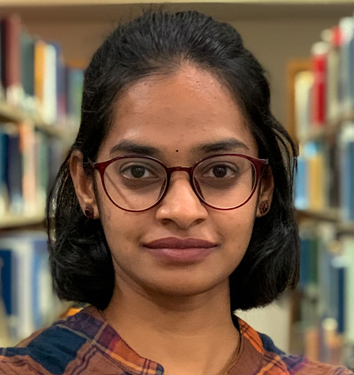
Nivedhitha Parthasarathy (Nivi), MPH is a PhD student at the University of Texas Health Science Center (UTHealth) at Houston in the Department of Health Promotion and Behavioral Sciences. She worked as a dentist, and later pursued an MPH with a concentration in Global Health from Manipal, India. She is working towards exploring the diet behaviors of children from low-income families and their home food environment, especially in the context of the COVID-19 pandemic. She aims to direct her research towards a broader scope of cancer prevention, and design and implement culturally tailored interventions to address diet behaviors among underserved immigrant families. Outside of work, she enjoys hiking, painting, singing, and growing indoor plants.

Dr. Patel is a Fellow in Urologic Oncology and Clinical Instructor of Urology at Loyola University Medical Center. He completed medical, public health, and urologic residency training at Johns Hopkins. He is a clinical researcher focused on evidence-based practices and quality improvement in the diagnosis and management of prostate cancer and renal cell carcinoma. He served on methodology teams performing systematic reviews used to inform clinical guidelines on kidney and testis cancer. He has initiated and completed randomized trials and prospective cohort studies on the prevention of venous thromboembolism, recovery of erectile function, and reduction of opioid prescribing after radical prostatectomy for localized prostate cancer. His recent focus has examined the role of multiparametric magnetic resonance imaging in the diagnosis and management of prostate cancer, as well as utility of predictive modeling to guide clinical decisions.

Alexandra Peluso graduated from the University of Texas with a masters in health behavior/health education in May 2020. She is currently working at the Wake Forest School of Medicine in the Implementation Science Department as an assistant project manager. Alex works on a variety of different projects under the direction of Drs. Sarah Birken and Justin Moore.
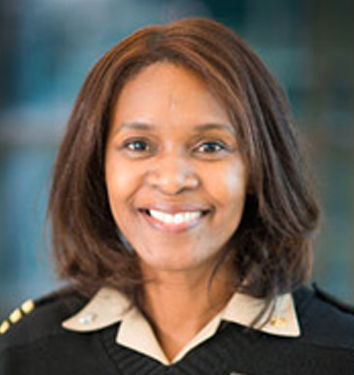

Malesa Pereira is currently a third-year doctoral student in the Department of Behavioral and Community Health Sciences at LSUHSC School of Public Health in New Orleans. She obtained her undergraduate degree in Biochemistry from Binghamton University and her Master of Public Health in Maternal and Child Health from University of South Florida. Prior to entering the doctoral program at LSUHSC, Malesa spent nine years working in clinical research, three years at Weill Cornell in pulmonary research and six years at Moffitt Cancer Center in cancer imaging research. Malesa’s research interests include improving outcomes for Pediatric, Adolescent and Young Adult Cancer Patients during treatment and survivorship in rural areas.

Cynthia Perry is the Director of the Family Nurse Practitioner Program and Associate Professor at Oregon Health & Science University School of Nursing. She holds a PhD in nursing science from OHSU, MSN in family nurse practitioner from Yale, and BA in anthropology from Northwestern. She has practiced as an FNP in various settings including rural Oregon and Alaska. She currently practices at OHSU Anticoagulation Clinic. Her research focuses on physical activity promotion as an avenue to reducing health disparities within rural and Latino communities using a community-based participatory research approach. She works on multidisciplinary national research teams and networks as well as with local communities. She is developing an expertise in dissemination and implementation of public health programs and clinical interventions. She is a fellow of the American Heart Association.

Victoria Petermann is a PhD student at the UNC School of Nursing, and a CPCRN co-investigator at the UNC collaborating center. Petermann's current research interests involve exploring how geographic factors impact access to cancer care and outcomes for individuals with gynecologic malignancies. She is primarily focused on rural-urban differences in gynecologic cancer care and outcomes and understanding what factors put rural patients at risk for poor outcomes.
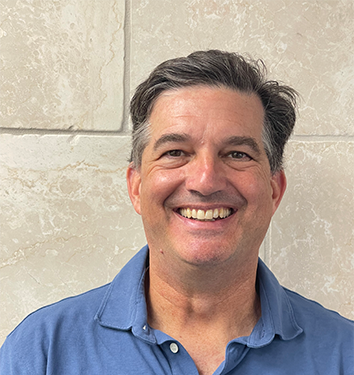
Dr. Pignone is Professor of Medicine and Inaugural Vice Chair of Quality and Innovation the Department of Medicine at the Duke University School of Medicine. He also serves as Faculty Director of Primary Care Transformation at the Margolis Center for Health Policy, Director of Cancer Screening Equity within the Duke Cancer Institute and holds an American Cancer Society Clinical Research Professorship.
Prior to coming to Duke, he was the inaugural chair of Department of Internal Medicine at the Dell Medical School of the University of Texas- Austin and held the Lowell Lebermann Endowed Chair. He also served as the founding director of cancer prevention and control for the LiveStrong Cancer Institutes within Dell Med.
Dr. Pignone received his medical degree in 1993 and completed residency training in primary care internal medicine in 1996 from the University of California- San Francisco. He then completed fellowship training from 1996-98 in clinical epidemiology and health services research through Robert Wood Johnson Clinical Scholars Program, as well as a Master’s degree in Epidemiology from the University of North Carolina School of Public Health. From 1998 to 2016, he was on the faculty at the University of North Carolina School of Medicine where he was Professor of Medicine, as well as Chief of the Division of General Internal Medicine and Clinical Epidemiology. From 2013-2016, he served as the Founding Director of the UNC Institute of Healthcare Quality Improvement. From 2013 to 2017, he served as a member of the US Preventive Services Task Force.

Anna has worked in research for over 20 years in a wide variety of settings, from health systems to community clinics or FQHC to barbers’ shop. She fosters partnerships to ensure well designed and executed research that meets the needs of patients and communities.
Prior to arriving at the University of Pennsylvania Anna served as the Administrative Director in the Clinical Trials Office at the University of Hawai'i Cancer Center, Director of the American Registry for Migraine Research, and as a Sub-Investigator in sleep treatment trials. Additionally, Anna spent over a decade at NCI designated Sidney Kimmel Cancer Center in community and education initiatives. Key topic areas include oncology, clinical trails, registries, community engagement, research strategy, migraine, sustainable food systems, yoga and alternative and complementary medicine.

Shoba Ramanadhan is a behavioral scientist with expertise in implementation science, cancer disparities, and community-based participatory research. Her work focuses on strengthening systems in underserved communities to leverage the best available evidence for cancer prevention and control. Her research falls into three streams. First, she designs and evaluates workforce development interventions to promote the use of research evidence within community-based organizations in the US and India. This work also includes examinations of the impacts of staff social networks on the uptake and use of research evidence. Second, she studies the adaptation of evidence-based cancer prevention and control programs for use in underserved communities in the US and India. Her goal is to design practice-focused guidelines for strategic adaptation so that implementing organizations can increase the impact of available interventions for underserved communities. The third stream of her work focuses on methods to incorporate practitioner expertise into the cancer prevention and control evidence base more effectively. This work includes evaluations of strategies to identify and engage critical implementation stakeholders as well as technology-based methods to gather stakeholder insight efficiently. Dr. Ramanadhan completed her postdoctoral training at the Yale School of Public Health and received her ScD from the Harvard T.H. Chan School of Public Health, MPH from the Yale School of Public Health, and BS from Cornell University.

Dr. Priyanka Ravi is a public health dentist with expertise in cancer prevention, tobacco control, and implementation science. Her work focuses on promotion health of vulnerable populations in the US and globally.
Her current work examines product-level factors such as flavoring, design, nicotine content, advertising, promotion, and sponsorship that influence the use of ENDS and nicotine pouches among young adults in North Dakota. She also focuses on oral cancer education and the adaptation of evidence-based interventions for underserved communities, drawing on her experience with community-based oral cancer screening in India and workforce-focused approaches to tobacco control. Her past work emphasizes occupational and reproductive health among vulnerable populations, including women involved in beedi production and tobacco farming in India. She also uses of implementation frameworks like RE-AIM and CFIR to understand the process evaluation, barriers, and facilitators in implementing community-based programs.
Dr. Ravi completed her PhD in Health Behavior and Health Promotion from the University of Arizona, Master of Dental Surgery in Public Health Dentistry from Manipal Academy of Higher Education, India, and Bachelor of Dental Surgery from The Tamil Nadu Dr. M.G.R. Medical University.

Dr. Reuland is a professor of medicine at the University of North Carolina in the Division of General Medicine and Clinical Epidemiology. He attended medical school at Johns Hopkins University and did his internal medicine residency at Yale—New Haven Hospital. He practiced and taught internal medicine for 11 years (including 4 years with the U.S. Indian Health Service) before deciding to focus on research and enter a post-doctoral fellowship at the UNC Cecil G. Sheps Center for Health Services Research. He completed the fellowship and MPH degree at the UNC Gillings School of Global Public Health in 2008, after which he rejoined the UNC faculty as a health services researcher. His research interests include developing, testing, and implementing interventions aimed at improving clinical communication, decision making, and health behaviors within primary care practice and health systems. Much of his work aims to enhance our understanding of how to make cancer screening more appropriate, patient-centered, and effective.
His primary areas of inquiry are in cancer prevention and control, though he collaborates on studies in other disease areas. He is currently principal investigator of a multi-site, clinical trial funded by an American Cancer Society Research Scholar Grant testing a colorectal cancer screening intervention in safety net care settings in North Carolina and New Mexico. He recently led a multi-disciplinary effort to develop policies, processes, and tools needed for appropriate implementation of lung cancer screening within the UNC Health Care System, and he is PI on intramural (pilot) research grants to develop and test lung cancer screening decision support tools. Dr. Reuland was recently appointed Director of the Carolina Cancer Screening Initiative, supported by the UNC Lineberger Comprehensive Cancer Center and University Cancer Research Fund, which focuses on improving the delivery of evidence-based cancer screening in NC.


Thomas B. Richards, MD, is a medical officer in the Epidemiology and Applied Research Branch in CDC’s Division of Cancer Prevention and Control. Dr. Richards graduated from the University of California at San Francisco Medical School in 1969. He completed the requirements for a master’s degree in public health at the University of California at Los Angeles School of Public Health in 1976 and was certified by the American Board of Preventive Medicine in 1983. Dr. Richards has been with the Epidemiology and Applied Research Branch since 1999. His current research areas of interest include analyses of national surveys about cancer prevention and control, and analyses of cancer registry data linked with Medicare claims.


Rogelio Robles, MD is a medical doctor with a specialty in Ob-Gyn and a subspecialty in Gyn-Oncology. Dr. Robles graduated from Universidad Nacional Autonoma de Mexico (UNAM) in Mexico City. His research focuses on cancer prevention and early detection, personalized treatments, survivorship, and cancer-related outcomes in gynecological and breast cancers. He has been invited as a speaker in multiple Gynecology and Oncology meetings. Dr. Robles recently joined "Nosotros Comprometidos a Su Salud," aiding the Clinical Translational Science branch while earning his PhD degree. He is a bilingual and bi-cultural Mexican doctor passionate about improving health care in medically underserved areas and populations in Southern Arizona and Northern Sonora.
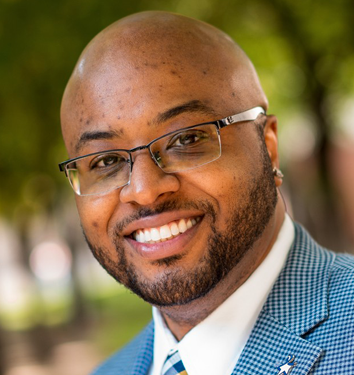
Committed to dismantling systems of oppression to ensure equitable health for all, Dr. Charles R. Rogers currently serves as an Associate Professor of Epidemiology & Social Sciences in the Institute for Health & Equity at the Medical College of Wisconsin (MCW). He is also an MCW Cancer Center Research Scholar Endowed Chair and the Inaugural Associate Director of Community Outreach & Engagement for MCW’s Cancer Center. In addition to being the Founding Director of his Men’s Health Inequities Research Lab since 2014, Dr. Rogers is also an Associate Member of the University of Michigan-Mixed Methods Program. Dr. Rogers’ research agenda has contributed to translational solutions that address the complex underpinnings of inequities in men’s health, with a primary focus on colorectal cancer (CRC) awareness and prevention among African-American men for more than 10 years. In addition to being a thought leader in the CRC space, his research foci also include cancer health disparities, behavioral & community-based implementation science, mixed methods, and survey methodology.

Elizabeth A. Rohan, PhD, MSW Division of Cancer Prevention and Control (DCPC) Centers for Disease Control and Prevention Dr. Elizabeth Rohan is a health scientist in CDC’s Division of Cancer Prevention and Control. Drawing on her background in clinical oncology social work, she works to address a wide range of psychosocial challenges affecting cancer survivors and their caregivers. Her research focuses on patient navigation and community health worker interventions. She is a co-lead of the CDC’s Community Health Worker Workgroup. Her recent studies have provided an approach for increasing the health and wellness of cancer survivors in rural communities through tele-mentoring of rural providers and providing patient navigation and community health worker services to post-treatment survivors.

Dr. Rohweder is a Senior Investigator with the UNC Center for Health Promotion and Disease Prevention at the University of North Carolina at Chapel Hill. She has worked extensively in the field of dissemination and implementation research and has expertise in the translation of evidence-based guidelines and recommendations into clinical and public health practice. Specific areas of interest include cancer screening, chronic disease management, and methods for improving community engaged research. She has been involved with the CPCRN since 2008, and she currently serves as the Project Director of the UNC network site. She received her MPH from Columbia University in 1994 and her DrPH from UNC Chapel Hill in 2004.

Dr. Rowland is a long-time clinician, researcher and teacher in the area of psychosocial aspects of cancer. She has worked with and conducted competitively funded research among both pediatric and adult cancer survivors and their caregivers, and published broadly in psycho-oncology, including co-editing with the late Dr. Jimmie Holland the ground-breaking text, Handbook of Psychooncology.
Dr. Rowland received her PhD in Developmental Psychology from Columbia University and was one of the first two psychologists to complete a post-doctoral fellowship at Memorial Sloan-Kettering Cancer Center in psychosocial oncology. While at Memorial, she earned her license in psychology and held joint appointments in the Departments of Neurology and Pediatrics. In 1990 Dr. Rowland moved to Washington, DC to become founding Director of the Psycho-Oncology Program at Georgetown University and the Lombardi Cancer Center. Nine years later, she was recruited to the National Cancer Institute to become the first, full-time Director of the Office of Cancer Survivorship. During her tenure as Director, Dr. Rowland helped build the visibility of the Office of Cancer Survivorship and created numerous governmental and non-profit partnerships to advance public awareness about and funding for research promoting the healthspan and post-treatment care of the growing population of cancer survivors of all ages, and their families.
Since retiring from her NCI position in September 2017, Dr. Rowland has assumed the role of Senior Strategic Advisor to Smith Center for Healing and the Arts, a 24-year old non-profit that provides integrative care programs and services to cancer survivors, their family caregivers and healthcare providers in the heart of Washington, DC. In this new role, she hopes to bring the growing evidence-base for best practices in quality survivorship care to the broader community.


Dr. Sabatino is a medical officer in the Division of Cancer Prevention and Control at the Centers for Disease Control and Prevention (CDC). Dr. Sabatino’s research interests include examining quality of cancer care from screening through treatment and survivorship, with a particular interest in how access to care influences care received. Dr. Sabatino also works with The Guide to Community Preventive Services (The Community Guide), leading systematic reviews of the effectiveness of interventions to promote cancer screening, and collaborates on several multi-institutional initiatives including the Cancer Prevention and Control Research Network (CPCRN). Dr. Sabatino received her undergraduate degree from Yale University, her medical degree from the Brown University School of Medicine, and a master of public health degree from the Harvard School of Public Health. She completed residency training in internal medicine and fellowship training in general internal medicine at the Beth Israel Deaconess Medical Center in Boston, Massachusetts.

Krista Scheffey, MPH, MSW, is the Deputy Director of the UPenn PRC and a Research Project Manager for the Center for Health Behavior Research in the Perelman School of Medicine at the University of Pennsylvania.

Dr. Aaron Scherer is currently an Associate faculty member with the Division of General Internal Medicine at the University of Iowa. Aaron earned his PhD in Psychology from the University of Iowa and utilizes methodologies from social psychology, social cognition, and neuropsychology to study the causes and consequences of biased beliefs. His current research has focused on the causes and consequences of biased beliefs regarding health and politics. One line of his research examines the causes of biased beliefs, primarily focusing on biased information seeking, highlighting the role that desirability (e.g., positive affect associated with being right; money) plays in biasing information seeking and subsequent confidence and decision making. His other line of research examines the consequences of biased beliefs across a variety of contexts such as the impact of comparative biases on intentions to change eating behaviors; metaphors on intentions to get vaccinated; and political stereotypes on political polarization.

Dr. Schlechter is an Assistant Professor in the Department of Population Health Sciences and an investigator in the Center for Health Outcomes and Population Equity (HOPE) at the Huntsman Cancer Institute and University of Utah. Her work focuses on using community-engaged research to develop and evaluate strategies to improve the implementation of EBIs for chronic disease prevention and control; understanding the multilevel level factors that influence implementation; and understanding the factors that influence individuals’ engagement in health promoting behaviors and evidence-based interventions.

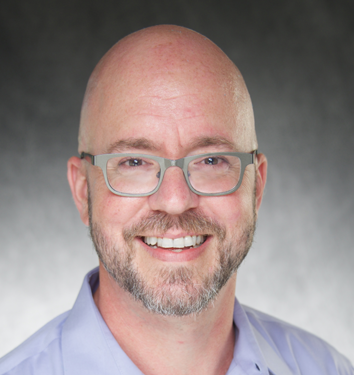
Dr. Aaron Seaman is an Associate member of the UI Holden Comprehensive Cancer Center and an Associate of UI Internal Medicine. He received his PhD from the University of Chicago in comparative human development. His research interests include gerontology, qualitative methods, ethnography, medical anthropology, aging, dementia care and cancer survivorship.

Dr. Shannon Self-Brown is a child clinical psychologist and a Distinguished University Professor in the School of Public Health at Georgia State University. She serves as Chair of the department of Health Policy and Behavioral Sciences and is the Co-Director of the National SafeCare Training and Research Center (NSTRC). NSTRC is housed within the School of Public Health and focuses on the dissemination of SafeCare, an evidence-based parenting program for preventing child physical abuse and neglect. Dr. Self-Brown also holds a leadership role in the National Center on Child Trafficking.
Dr. Self-Brown’s research focuses on child maltreatment prevention, behavioral parenting intervention, youth trauma intervention, and implementation science. Her research has been funded by NIH, NCTSN, CDC, PCORI, and several foundations. Dr. Self-Brown has more than 130 peer-reviewed publications focusing on the impact of youth violence, trauma, and disaster exposure on youth mental health, as well as the implementation of evidence-based behavioral parenting programs and mental health practices for traumatized youth. She has served as a grant reviewer for the DOJ, NCTSN, and NIH, and as a member of the editorial board for the journal Child Maltreatment.

Jason Semprini earned his Ph.D. in Health Services and Policy from the University of Iowa College of Public Health. Following his Ph.D., he completed one year of postdoctoral training in the Iowa Cancer Registry. Previously, Semprini was a Susan G. Komen Cancer Disparities Scholar at the University of Chicago, where he earned his master’s in public policy with a certificate in Healthcare Administration and a certificate in Health Policy. Semprini has published his research in high-impact peer-reviewed journals and presented at national conferences. His research uses novel data linkages and causal inference methodologies to evaluate the impact of public health policies and practices on health outcomes and equity. A lifelong Iowan, Semprini is passionate about disseminating policy-relevant evidence to address critical health needs and improve the wellbeing of everyone in our state.

Dr. Parth Shah is a behavioral scientist and pharmacist who integrates these two disciplines to study and improve clinical practice and health policy in the delivery of cancer care. Dr. Shah’s research focuses on how pharmacies can be better used to provide cancer prevention and care services to their communities, such as HPV vaccinations for adolescents and colorectal cancer screenings for adults.

Jackilen Shannon is the Director of the Integrated Program in Community Research, Director of OHSU’s Clinical and Translational Science Award (CTSA) Community and Collaboration Core and Director of Community-Engaged Research at the Knight Cancer Institute. Her research program has three areas of focus. First, her work in nutritional and molecular epidemiology focuses on the impact of environmental risk factors, primarily dietary intake, on the early development of disease. This research also expands into the broader role of metabolic factors, including obesity and fat distribution on disease risk. Additionally, she contributes methodologic expertise in the development and conduct of observational studies, including case-control and cohort studies and clinical trials. Second, she developed and expanded an education and research program, Let’s Get Healthy!, that provides personalized health education to school children and adults through an interactive health fair. This program supports the development and maintenance of a population-based anonymous data repository for academic and community use while also providing tailored, community-friendly feedback about individuals’ multiple cancer risk factors, including dietary intake and body composition while also offering specific information on risky behaviors for skin and lung cancer. Finally, as an epidemiologist, her work has largely utilized population based methodologies, with a long-term goal of translation to the community and policy. To this end, she has worked toward developing a formal mechanism for working collaboratively with community groups and hospital systems in Central Oregon and the North Coast region to bring the power of academic research to community level decision-making. The result of this work has been the establishment of Research Coalitions which employ a liaison who works closely with community leaders to identify areas of research need, and with academic institutions to identify investigators able to assist.
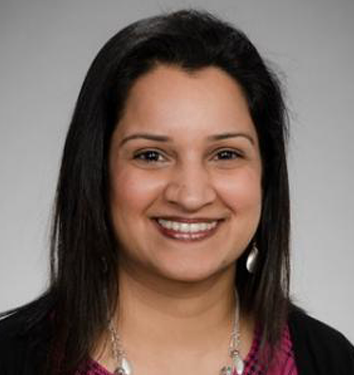
Dr. Sharma is an Associate Professor in the Division of General Internal Medicine at the University of Washington and Director of Equity, Diversity, and Inclusion for the UW Medicine Cambia Palliative Care Center of Excellence. She completed medical school and an internal medicine residency at the University of Washington followed by a General Internal Medicine Fellowship at the Johns Hopkins University where she received a Masters in Health Sciences from the Bloomberg School of Public Health. Dr. Sharma’s research program focuses on improving the quality of care for patients with serious illness through multi-level interventions with a focus on minoritized and immigrant populations. She is currently the PI of two large mixed-methods studies that seek to address barriers to palliative care among patients with preferred language other than English and their family members in the context of dementia (NIA R01 AG0742353) and advanced cancer (ACS RSG-21-095-01-HOPS). Dr. Sharma is also a board-certified palliative care physician and attends on the inpatient palliative care consult service at the University of Washington Medical Center.

Jingxi Sheng, PhD completed her doctoral studies at the College of Nursing at the University of South Carolina in Summer 2022. Her long-term research focuses are healthy behaviors and cancer prevention and control among Asian Americans. Her doctoral research was interested in understanding attitudes and beliefs about the role of physical activity in breast cancer prevention and investigating physical activity factors among Asian Americans. She is interested in inventions other than surgical or pharmaceutical treatments that can help reduce breast cancer risk, such as engaging in regular physical activity. Through her doctoral research, she explored the role of cultural context on Asian American women’s physical activity experience to better understand the physical activity determinants.

Michelle B. Shin is an Assistant Professor in the Department of Child, Family, and Population Health Nursing at the University of Washington (UW) School of Nursing (SON). Her research focuses on application of implementation science methods and interventions to improve cancer prevention, care delivery and equity among underserved populations. She has clinical experience in safety-net primary care settings and research experience in cervical cancer prevention (human papillomavirus [HPV] vaccination and HPV self-sampling) domestically and abroad. Michelle is involved in interdisciplinary projects that uses mixed methods and population-based data to understand and improve cancer disparities.

W. Michael Short is an entrepreneur and management consultant with over 15 years of experience launching and scaling mission-driven ventures and initiatives across diverse sectors, including real estate, technology, public health, higher education, and economic development. His efforts have spanned investor-backed companies, cross-sector public/private partnerships, and national campaigns. Currently, Mr. Short serves as the Director of Firefly Innovations. In this role, he leads the platform’s comprehensive expansion efforts and programs, including the CUNY Public Health Innovation Accelerator and the launch of the platform’s web portal providing year-round support, services, resources, and opportunities for Firefly’s global network of over 8,000 public health practitioners, entrepreneurs, academics, researchers, and students. He also holds multiple leadership positions, including Senior Director at CUNY Center for Systems & Community Design, Communications Lead for NYU-CUNY Prevention Research Center, President of a university-based institute supporting high impact social entrepreneurs globally, Principal of a consulting practice, and founder of multiple startups. Mr. Short’s entrepreneurial and economic development ventures and initiatives have been highlighted by over 100 media outlets and received widespread recognition. Highlights include but are not limited to: ● Projects recognized for driving economic impact and job creation at The White House, United States of Women Summit, and New York Stock Exchange. ● Forbes Editors’ Pick for “leveling the playing-field for small businesses.” ● Praised by CBS News Radio Small Business Spotlight for making “economics and finance interesting, fun, and understandable,” and for combating predatory lenders by providing startups access to a network of alternative funding sources. ● Featured at Clinton Global Initiative for leading a $100 million CGI-sponsored “Commitment to Action” initiative supporting small businesses and driving economic, entrepreneurial, and community development nationally. ● Huffington Post Series “What’s Working: Small Business”: Recognized for launching a national platform to support high-impact social entrepreneurs. ● Highlighted by Syracuse Post-Standard for engaging and providing experiential learning opportunities for hundreds of university students nationally. ● Recognized by Onondaga County, NY, for implementing the largest green infrastructure developments on private property in the county, with over $1 million in funding, supporting efforts to revitalize the world’s most polluted lake. Mr. Short has advised and assisted clients in securing over $320 million in funding for projects leveraging grants, tax incentives, and other financial tools to create meaningful community impact. Mr. Short also built and scaled ventures and initiatives projected by university partners to generate over $1 billion in economic impact when fully implemented. Mr. Short founded a university-based institute supporting high-impact social entrepreneurs, coordinating with over 250 organizations, while serving as the inaugural Social Entrepreneur in Residence at Le Moyne College's Center of Excellence for Global Engagement & Impact. As Program Director for the International Innovators Initiative (IN2NYC) at Medgar Evers College, he coordinated with the City of New York, NYC Economic Development Corporation, and CUNY to recruit top international entrepreneurs, fostering job creation and economic growth in underserved communities. Mr. Short holds degrees from Syracuse University’s S.I. Newhouse School of Public Communications and the Maxwell School of Citizenship & Public Affairs. Upon graduation, he was selected as a University Engagement Scholar and completed a graduate fellowship supported by the Kauffman Foundation, Gifford Foundation, and Imagining America. During this time, he served as a Deputy Director involved with Syracuse University’s multi-billion dollar economic development initiatives focused on revitalizing the city and an adjacent community with the highest poverty concentrations in the U.S.

Santana is a current PhD candidate specializing in Population Health Sciences at the Harvard T.H. Chan School of Public Health, where she also obtained her Masters in Public Health in Health and Social Behavior. Her research focuses on social determinants of health that contribute to racial/ethnic and socioeconomic disparities in chronic disease outcomes across the life course. Her broad interests include the social, cultural, and environmental factors that influence health in low-income and minority populations. Specifically, she is interested in the ways in which the built and food environments affect chronic disease risk and outcomes. She aims to use implementation science and community-based participatory research to promote health equity in the clinical and community settings through creating more equitable access to healthy eating and active living opportunities.

Dr. Skiba is an Assistant Professor in the College of Nursing at the University of Arizona. She received her doctorate from the Mel & Enid Zuckerman College of Public Health at the University of Arizona and completed post-doctoral training at Oregon Health & Science University. Dr. Skiba has experience delivering remote diet and physical activity interventions as well as health coaching, accelerometry, mixed-methods, and data analysis. Her research has emphasis in biological aging, technology, and dyads. She is interested in addressing cancer health disparities by connecting cancer survivors to the skills and behaviors to live their healthiest and longest life.

Dr. Spears is an Associate Professor of Health Policy & Behavioral Sciences in the School of Public Health at Georgia State University. She is a clinical psychologist by training, and her research focuses on digital health interventions, community-engaged approaches, and targeting cancer-related health disparities. She has particular interest in mindfulness-based interventions to improve stress management and tobacco cessation in under-resourced communities.

Lisa Spees is an Assistant Professor in the Health Policy and Management Department at the University of North Carolina at Chapel Hill. She is a health services researcher interested in examining and reducing health disparities by improving cancer care quality and access among minority and rural populations. To date, her research in this area has focused on identifying multi-level (patient, provider, and organizational) barriers across the cancer care continuum using both qualitative and quantitative methods. Dr. Spees is especially knowledgeable in handling complex datasets including CIPHR (North Carolina cancer registry data linked to private and public insurance claims data) and SEER-Medicare.
Dr. Spees is currently leading projects focused on 1) examining the financial impact of hematopoietic stem cells transplant among pediatric cancer patients and their families and 2) improving access to guideline-concordant care for patients with gynecologic malignancies.

Elsa currently supports implementation of the Colorado Cancer Screening Program (CCSP), housed at the University of Colorado, as well as additional cancer prevention and control initiatives. CCSP is one of the largest preventive screening programs in Colorado, focused on utilizing patient navigation to reduce health disparities for colorectal and lung cancer screening, as well as hereditary cancers. Elsa has been working in the cancer prevention field since 2016 and has also worked as a project coordinator for a college skin cancer prevention initiative and the Research Engagement Manager for a national colorectal cancer nonprofit. Elsa has a Bachelor of Science in Public Health and Master of Public Health with a concentration in Health Education and Communication from Tulane University. She is passionate about working with communities across the state and nationwide to increase equitable access to and reduce barriers to preventive care.

Lindsay R. Stradtman, MPH, CPH is a Research Associate at the Center for Health Promotion and Disease Prevention (HPDP) at the University of North Carolina-Chapel Hill (UNC). In her role, Lindsay is a member of a UNC-specific CPCRN project team, working in partnership with the Centers for Disease Control and Prevention (CDC) and National Association of Chronic Disease Directors (NACCD) to support the development of CDC's Cancer Screening Change Packages (CSCP). Before coming to UNC, Lindsay formerly served as Project Director in the Department of Health, Behavior & Society at the University of Kentucky College of Public Health. There, she worked on the Appalachian Center for Cancer, Education, Screening, and Support (ACCESS) and the UK Rural Cancer Prevention Center (RCPC), a Prevention Research Center of the CDC. She has experience with research involving health disparities in rural Appalachia, preventive cancer screenings, and academic-community partnerships. Lindsay previously served as an ASPPH/CDC Public Health Fellow with the CDC National Personal Protective Technology Laboratory. She received her Master of Public Health degree from the University of Kentucky.


Ryan Suk (she/they) is a health economist and decision scientist by training and an Assistant Professor at Emory University, jointly appointed at Nell Hodgson Woodruff School of Nursing and the Dept of Health Policy and Management at Rollins School of Public Health. Ryan also serves as a Faculty Consultant for Health Economics and Outcomes Research (HEOR) at the Winship Center for Cancer Health Equity Research of Winship Cancer Institute. Their research involves leveraging large-scale datasets and decision modeling to gain insights into the equity and efficiency of HPV-associated cancer prevention and control. She is dedicated to tailoring efforts for underrecognized populations, including the LGBTQIA+ and Asian American communities.

Dr. Jen Sukalski is an Assistant Professor in Preventive and Community Dentistry at the University of Iowa College of Dentistry, a Dental Public Health expert, and a registered dental hygienist who provides oral health services to underserved communities. Her research focuses on examining access to care for populations with significant barriers. She specifically explores evidence-based strategies to engage the oral health workforce in expanding access to oral cancer prevention services, particularly through HPV vaccinations.

Florence Tangka, PhD, MS, is a health economist in the Division of Cancer Prevention and Control's Epidemiology and Applied Research Branch, at the Centers for Disease Control and Prevention (CDC). She is the principal investigator for a number of CDC cancer economics studies. Her research focuses on the economics of cancer, economics of the cancer registration, economics of CDC’s Colorectal Cancer Control Program, and use of cancer screening services. Dr. Tangka received a Bachelor of Science from the University of Reading in the United Kingdom and a Masters from Rutgers. In 2008, she received an alumni award from Rutgers. She received her doctoral degree from the University of Florida and completed a two-year postdoctoral fellowship in Prevention Effectiveness at CDC. Dr. Tangka is a lead author of a book, two monographs (guest editor) and several book chapters and has authored and coauthored over 70 publications in peer-reviewed journals.

Cynthia (Cyndi) Thomson, PhD, MS, RDN is a cancer prevention scientist with over 20 years of lifestyle intervention clinical trials research effort focused on cancer survivors. Her doctoral degree in nutritional sciences served as the foundation for her translational science career. In 2019 she completed the TIDIRC training and complimented her research program with a focus on implementation and dissemination of evidence-based information and programming with an interest in reaching those under-represented in biomedical research and under-served by cancer survivorship programming.

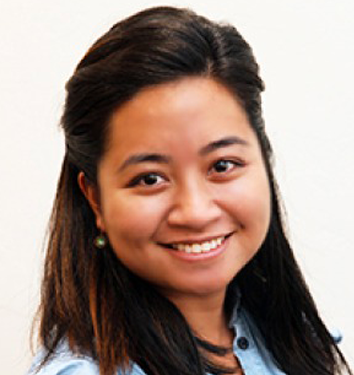
Tara Torres is a PhD student in the clinical psychology program at the University of Arizona. She received a bachelor’s degree in psychology from the University of California, Los Angeles (UCLA) and a master’s degree in psychology from the University of Arizona. Her research interests include healthcare provider communication, symptom management, and supportive care practices for underserved cancer populations. Her recent research efforts have focused on evaluating empathic communication gaps found between providers and Hispanic cancer patients. Tara’s long-term goals include using implementation science to facilitate the systematic uptake of communication skills training interventions that lead to equitable cancer care practices.


Dr. Erika Trapl is an Assistant Professor in the Department of Population and Quantitative Health Sciences at Case Western Reserve University. She is Associate Director of the Prevention Research Center for Healthy Neighborhoods and PI of the CWRU Cancer Prevention and Control Research Network Collaborating Center. Dr. Trapl is trained as an epidemiologist and has been conducting health behavior intervention research for over 15 years. Her work currently focuses on understanding and addressing the influence of the physical and social environment on lifestyle risk factors such as diet and tobacco use through policy, systems, and environmental change approaches, with a particular focus on health equity and disparities. Dr. Trapl has applied classical epidemiological methods to understand the characteristics, risk factors, and correlates of adolescent and young adult tobacco use in order to develop successful tobacco prevention and cessation interventions. She is also conducting a study exploring the use of the 2-1-1 help line to promote smoking cessation among low-income smokers.


Chau Trinh-Shevrin, DrPH, is an Associate Professor in the Departments of Population Health (DPH) and Medicine at NYU School of Medicine. Within DPH, Dr. Trinh-Shevrin serves as Vice Chair for Research and heads the Section for Health Equity. For more than 20 years, Dr. Trinh-Shevrin has been involved in health promotion, disease prevention, and health disparities research programs utilizing community-based participatory research principles (CBPR) among Asian American, Native Hawaiian, and Pacific Islander and other underserved populations. Her research spans cancer, mental health, diabetes, hypertension, cardiovascular disease, healthy aging, and Alzheimer’s Disease. Currently, she is MPI of an NIH NIMHD Specialized Center of Excellence—the NYU Center for the Study of Asian American Health; a CDC-sponsored Prevention Research Center that is a partnership between the NYU School of Medicine and the CUNY School of Public Health, and a NIA R24 Engagement in Longevity and Medicine (ELM) Research Collaborative. Dr. Trinh-Shevrin is PI of a CDC-funded Cancer Prevention and Control Research Network Collaborating Center. Dr. Trinh-Shevrin also serves as associate director of Community Outreach and Engagement for the Perlmutter Cancer Center and co-director of the Community Engagement and Population Health Research Core and the Integrating Special Populations Unit for the NYU-Health + Hospitals (H+H) Clinical and Translational Science Institute (CTSI). In these institutional roles, she is involved in fostering community-engaged research collaborations and developing research training programs for community and academic partners aimed to strengthen equitable campus-community partnerships. Dr. Trinh-Shevrin is a social epidemiologist with a doctorate in public health from Columbia University and a master in health policy and management from SUNY Albany.

Ben Urick, Pharm.D., Ph.D., is a research assistant professor at the Center for Medication Optimization in the Division of Practice Advancement and Clinical Education. His academic interests lie at the intersection of pharmacy practice, healthcare and health policy.
Dr. Urick’s primary research focuses on the role of community pharmacists in the evolving healthcare system and the use of secondary data to measure healthcare quality and spending. His current research includes evaluation of pharmacy services interventions, scientific reliability of provider-level quality measures, and factors which influence medication-related healthcare quality.
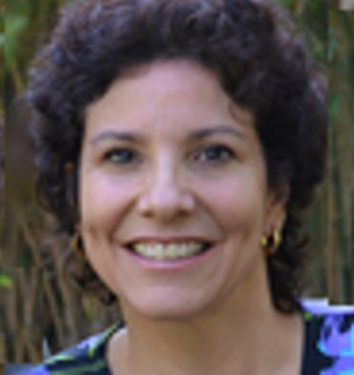
Patricia Alvarez Valverde, PhD, MPH is a Senior Instructor in the Department of Community and Behavioral Health of the Colorado School of Public Health. Dr. Valverde has conducted research on patient navigation, care coordination, and community health work as director of the Patient Navigator Training Collaborative and Co-Chair of the Training and Certification work group of the National Navigation Round Table. Dr. Valverde was the research manager of the Denver site of the Patient Navigation Research Program and continues to develop protocols and supervise navigators. Dr. Valverde has developed curricula related to patient navigation and care coordination for over 15 years and conducted local, national, and international trainings for this workforce. Dr. Valverde also conducts research on Latinx youth vaping behaviors and is appointed to the State Tobacco review Committee, which is responsible for state tobacco policy and distribution of tobacco tax revenues to local communities and organizations.

Mark Vander Weg is an Associate Professor in the Departments of Internal Medicine and Psychological and Brain Sciences at the University of Iowa an an Investigator with the Center for Access & Delivery Research and Evaluation (CADRE) Center of Innovation in the Iowa City VA Health Care System. He is trained as a clinical health psychologist and has a background in the design, conduct, implementation, and evaluation of interventions targeting health behavior change, particularly related to tobacco use.

Dr. Vanderpool is the Chief of the Health Communication and Informatics Research Branch(HCIRB) in the Division of Cancer Control and Population Sciences (DCCPS) at the National Cancer Institute (NCI). HCIRB, part of NCI's Behavioral Research Program (BRP), leads the advancement of research on processes and outcomes of communication and consumer health informatics across the cancer control continuum.
As Branch Chief, Dr. Vanderpool leads the development of health communication research initiatives in areas such as patient-provider communication, cancer risk communication, health literacy, social/new media, and connected health.
Dr. Vanderpool came to NCI from the University of Kentucky, where she was a professor in the Department of Health, Behavior & Society, part of the College of Public Health, and was Principal Investigator of CPCRN's University of Kentucky Network Center from 2014-2019. She also held leadership positions at the University of Kentucky Markey Cancer Center, as the Associate Director for Community Outreach and Engagement and Co-Director of the Behavioral and Community-Based Research Shared Resource Facility.
Dr. Vanderpool's research background includes HPV vaccination, cancer screening, cancer survivorship, implementation science, and rural cancer control. She earned her Doctorate of Public Health, with a concentration in Health Behavior, from the University of Kentucky. She received her Masters of Public Health in Public Health Education from Western Kentucky University and her Bachelor of Science in Psychobiology from Centre College.

Dr. Vang is an Assistant Professor in the Department of Population Health at NYU Grossman School of Medicine and a member of the Perlmutter Cancer Center at NYU Langone Health. Her program of research focuses on advancing cancer health equity in minoritized communities. She utilizes mixed methods to address the social determinants of health that lead to inequities in cancer prevention, diagnosis, and survivorship. She received her postdoctoral training from the Icahn School of Medicine at Mount Sinai and her PhD from Columbia University.

Aubrey Van Kirk Villalobos, DrPH, MEd, is a Health Scientist with the Implementation Science (IS) Team in the Office of the Director in the Division of Cancer Control and Population Sciences (DCCPS) at the National Cancer Institute (NCI). In this role she will be leading a number of efforts to advance the involvement of practitioners in IS to enhance the integration of evidence-based guidelines, programs, and policies for cancer control in public health and clinical practice. Following the 2020 Implementation Science Consortium in Cancer (ISCC), she is co-leading the Capacity Building for Engaged IS priority area within the Community Participation in IS Action Group. Dr. Villalobos will also cultivate research-practice partnerships through the Comprehensive Cancer Control National Partnership.
Prior to joining the NCI, Dr. Villalobos served as director of cancer control and health equity at the George Washington University (GW) Cancer Center where she supported strategic planning for the center’s community outreach and engagement activities and directed a multi-million-dollar portfolio of sponsored projects providing technical assistance and training to public health and health care professionals. Previously, she served as the cancer education outreach coordinator in the international outreach program at St. Jude Children’s Research Hospital.
Dr. Villalobos’s scientific and programmatic interests include social and structural influences on health behaviors and inequities, particularly related to primary cancer and chronic disease prevention and early detection. Her mixed methods dissertation research focused on social norms and breastfeeding among African American women and was supported by fellowships from the Sumner M. Redstone Global Center for Prevention and Wellness and the Jacobs Institute of Women's Health Clara Schiffer Project. She has expertise in social/behavioral science; community engagement and partnership-building; policy, systems, and environmental change for health promotion; and clinician, professional, patient and community education.
Dr. Villalobos received a Doctor of Public Health in health behavior from the Milken Institute School of Public Health at the George Washington University in Washington, D.C., where she also earned a Master of Public Health in health promotion. She holds a Master of Education from Christian Brothers University in Memphis, TN and a Bachelor of Science in biological chemistry from Bates College in Lewiston, ME.
Aubrey Van Kirk Villalobos, DrPH, MEd, is a Health Scientist with the Implementation Science (IS) Team in the Office of the Director in the Division of Cancer Control and Population Sciences (DCCPS) at the National Cancer Institute (NCI). In this role she will be leading a number of efforts to advance the involvement of practitioners in IS to enhance the integration of evidence-based guidelines, programs, and policies for cancer control in public health and clinical practice. Following the 2020 Implementation Science Consortium in Cancer (ISCC), she is co-leading the Capacity Building for Engaged IS priority area within the Community Participation in IS Action Group. Dr. Villalobos will also cultivate research-practice partnerships through the Comprehensive Cancer Control National Partnership.
Prior to joining the NCI, Dr. Villalobos served as director of cancer control and health equity at the George Washington University (GW) Cancer Center where she supported strategic planning for the center’s community outreach and engagement activities and directed a multi-million-dollar portfolio of sponsored projects providing technical assistance and training to public health and health care professionals. Previously, she served as the cancer education outreach coordinator in the international outreach program at St. Jude Children’s Research Hospital.
Dr. Villalobos’s scientific and programmatic interests include social and structural influences on health behaviors and inequities, particularly related to primary cancer and chronic disease prevention and early detection. Her mixed methods dissertation research focused on social norms and breastfeeding among African American women and was supported by fellowships from the Sumner M. Redstone Global Center for Prevention and Wellness and the Jacobs Institute of Women's Health Clara Schiffer Project. She has expertise in social/behavioral science; community engagement and partnership-building; policy, systems, and environmental change for health promotion; and clinician, professional, patient and community education.
Dr. Villalobos received a Doctor of Public Health in health behavior from the Milken Institute School of Public Health at the George Washington University in Washington, D.C., where she also earned a Master of Public Health in health promotion. She holds a Master of Education from Christian Brothers University in Memphis, TN and a Bachelor of Science in biological chemistry from Bates College in Lewiston, ME.
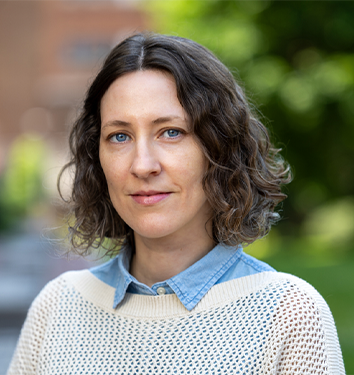
Julianna is a certified project manager (CAPM) and academic research administrator with a BA in Communications from the University of North Carolina and an MFA in Film & Video Production from the University of Iowa. She began her career as a documentarian, collaborating with scientists to craft compelling stories on topics like environmental sustainability, wildlife conservation, and global public health. Now she supports research directly through project management and administrative roles, and most recently served as Project Director for the CDC-supported Arthritis Management and Wellbeing Research Network (AMWRN).

Cynthia A. Vinson, PhD, MPA is a Senior Adviser for the Implementation Science Team in the Office of the Director in the Division of Cancer Control and Population Sciences (DCCPS) at the National Cancer Institute (NCI). Dr. Vinson works on building and sustaining the field of implementation science in order to enhance the integration of evidence-based guidelines, programs, and policies for cancer control in public health and clinical practice. Dr. Vinson leads dissemination and implementation research training activities including the annual Training Institute for Dissemination and Implementation (D&I) Research in Health. She is responsible for working both within NCI and with other agencies and organizations at the international, national, state and local level to translate research funded by DCCPS into practice.
Dr. Vinson came to the DCCPS as a Presidential Management Fellow and spent three years rotating in various office across NCI including science planning, legislation and communication. Prior to working at NCI, Dr. Vinson was a Peace Corps Volunteer in Gabon where she served as a health educator. Dr. Vinson was also previously a supervisor at the Kern County Department of Human Services in California. Dr. Vinson holds a doctoral degree in Public Administration and Health Policy from George Washington University, a master in public administration/international development from Rutgers, the State University of New Jersey and a bachelor’s degree in political science from California State University, Bakersfield.

Rosi Vogel graduated from Universidad Anáhuac in Mexico City from the College of Business Administration and Economics. Rosi is a certified health coach and a licensed CHW in the state of Arizona. Rosi has 20 years of experience in community outreach and engagement. Rosi is the Community Outreach and Engagement and Senior Program Coordinator of "Nosotros Comprometidos a Su Salud," a research program to foster community-engaged research collaborations, service, and education to advance health equity. Mrs. Vogel is an integral part of outreach in the Tucson and Southern Arizona communities for the UACC, and is a bilingual and bi-cultural Mexican woman who serves as the project director for the AzCPCRN and the Survivorship Workgroup


Dr. Ha Ngan (Milkie) Vu (she/her) is a mixed-methods researcher with nearly a decade of experience conducting community-engaged research to promote health equity. Her interdisciplinary research program addresses three interrelated themes: 1) exploring multilevel factors influencing health behaviors, with an emphasis on cancer prevention and control (e.g. HPV vaccination) among Asian Americans and migrant communities; 2) understanding and addressing health-related social needs of diverse populations; and 3) leveraging implementation science and community engagement to develop, implement, and sustain evidence-based programs, particularly in underserved communities or low-resource settings. Dr. Vu received her PhD in Behavioral, Social, and Health Education Sciences from Emory University; her MA in Social Sciences from the University of Chicago; and her BA in History & Cultural Anthropology from Duke University.

Cheyenne Wagi graduated from the University of South Florida with an MA in Medical Anthropology and an MPH with a concentration in Global Health Practice. Her interests are in sexual and reproductive health, qualitative research, and implementation science. Cheyenne is a research assistant under CPCRN affiliate, Dr. Sarah Birken, at the Wake Forest School of Medicine.

Casey Walsh, PhD, MSW is a post-doctoral fellow in the Biobehavioral Cancer Prevention and Control Training Program at the University of Washington and Fred Hutchinson Cancer Research Center. Her research focuses on the social functioning and health-related quality of life of adolescent and young adult cancer survivors. She is a pediatric medical social worker and volunteer wellness guide with Project Koru. She received her MSW from the University of Michigan at Ann Arbor and her PhD in Social Work from the University of Texas at Austin. She was a recipient of the American Cancer Society Oncology Social Work Doctoral Training Grant. She is passionate about bridging clinical care and research with the experiences and perspectives of patients and families.
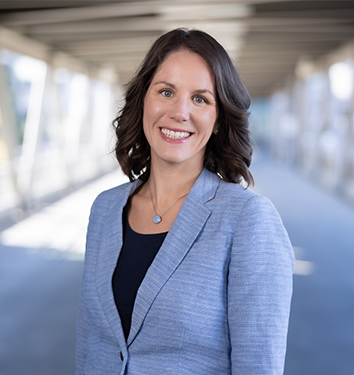
Mary Wangen is the Project Director for the Comprehensive Cancer Control Collaborative of North Carolina (4CNC). She earned her MPH in Health Behavior from the University of North Carolina Gillings School of Global Public Health. Her research interests include disseminating and implementing evidence-based interventions into practice to promote healthy behaviors and prevent chronic disease. She has experience in qualitative research, program evaluation, project management, and research administration. She is bilingual in English and Spanish.

Austin Waters (he/him) is currently a doctoral student in the Department of Health Policy and Management at UNC’s Gillings School of Global Public Health. His current predoctoral fellowship research, funded by the Cancer Care Quality Training Program (CCQTP) T32, focuses on inequities in economic and mental health outcomes experienced by LGBTQ+ cancer populations. Austin has experience in a variety of methods primarily focusing on the overlap of community engagement, health equity, qualitative methods, outcomes research, and implementation science. Through his research he hopes to be able to amplify the lived experience and voices of LGBTQ+ cancer populations to catalyze movement toward health equity.
Austin Waters, PhD, MSPH (he/him) is currently a postdoctoral research fellow in the Division of Population Sciences at the Dana-Farber Cancer Institute as well as at the Harvard LGBTQ+ Health Center of Excellence. Austin has experience in a variety of methods primarily focusing on the overlap of community engagement, health equity, qualitative/mixed-methods, outcomes research, and implementation science. Through his research he hopes to be able to amplify the lived experience and voices of LGBTQ+ cancer populations to catalyze movement toward health equity.

Dr. Watkins is a scholar of public affairs whose work aims to illuminate social and structural barriers that individuals face in achieving their full health potential in order to inform efforts that promote health equity. Her current work investigates patterns of tobacco initiation, product change, and cessation among youth and young adults, with a particular focus on the role of additive flavors in tobacco initiation, use, and tobacco-related health disparities. Another thread of research has focused on urban environments, particularly understanding social and environmental impacts of citizen engagement in caring for urban environmental resources and evaluating evidence, determinants, and outcomes of urban forest inequity. She approaches her research with an interdisciplinary lens and employs a variety of methodological approaches, including econometric techniques, meta-analysis, spatial analysis, and qualitative methods. A core component of her research program is engagement with public and policy stakeholders and public dissemination of her work.

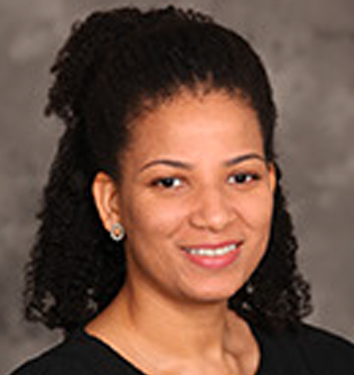
Jessica Wells is an Assistant Professor, tenure track, and received a PhD from Emory University in 2012, along with a Certificate in Women's, Gender, and Sexuality Studies, and completed a post-doctoral fellowship in 2015 at Emory University. She earned a BSN from Howard University in 2006. Dr. Wells’ overarching focus is cancer control and prevention in HIV infected and vulnerable populations. She recently completed a K01 Career Development Award where she examined individual, interpersonal, and neighborhood factors of adherence to follow up after an abnormal anal Pap test in HIV infected individuals. Her research has been supported by the National Institutes of Health, American Cancer Society, and Sigma Theta Tau International Nursing Honor Society.

Kelly Wells Sittig is the executive director for the Iowa Cancer Consortium, a partnership of more than 500 health care providers, public health professionals, caregivers, researchers, cancer survivors, volunteers and other Iowans who work together to reduce the burden of cancer in the state. Through collaboration, the Consortium enhances partners’ abilities to address cancer prevention, early detection, treatment and quality of life in Iowa.

Dr. Werts-Pelter is a postdoctoral associate at the University of Pittsburgh School of Medicine in the Division of Hematology/Oncology. She obtained her MPH and PhD in Health Promotion Sciences at the Mel and Enid Zuckerman College of Public Health and completed a graduate certificate in aging at the University of Arizona. Her research focuses on addressing barriers to practicing healthy lifestyle behaviors and promoting adherence to diet and physical activity guidelines for cancer prevention. She is largely interested in cancer health disparities faced by older and rural populations.


Dr. Wheeler is Professor with tenure in the Department of Health Policy and Management at the University of North Carolina at Chapel Hill. She is a health services researcher and decision scientist focused on quantifying the social, behavioral, clinical, and organizational factors that affect healthcare access, quality, value and equity. Her research portfolio, amounting to more than $20million in external funding and over 125 publications, is primarily focused on cancer care delivery, with particular emphasis on improving value, understanding the financial and psychosocial impacts of cancer, and reducing cancer health disparities. Methodologically, she is a resource for simulation modeling and systems science, ‘big data’ linkages and analytics, behavioral intervention studies, mixed methods, and comparative and cost effectiveness research. Dr. Wheeler is especially knowledgeable and well-versed in using economic, epidemiological, and systems modeling to support better healthcare decisions, and she is adept in analyzing complex datasets, including cancer registry data linked to all payer insurance claims data, epidemiological cohort data, healthcare workforce data, and more. Dr. Wheeler directs the CDC-funded and NCI-funded Cancer Prevention and Control Research Network (CPCRN) as PI of the Coordinating Center; co-directs the NCI-funded T32 Cancer Care Quality Training Program (CCQTP); and co-directs the NCI-funded Geographic Management of Cancer Heath Disparities Program (GMaP) Region 1 South. She was appointed to lead the Community Outreach and Engagement office at the UNC Lineberger Comprehensive Cancer Center in 2019. In 2017, she was awarded the Early Career Award from the Association of Schools and Programs in Public Health (ASPPH) and the UNC Hettleman Prize for Scholarly and Artistic Achievement.

Dr. Wickersham is an Assistant Professor, Tenure-Track at the University of South Carolina, College of Nursing. She is a core faculty member of the Cancer Survivorship Program. She received her BSN in 1991 from the University of Virginia, her MSN with a specialty in Nursing Education from the University of Pittsburgh in 2011, and her PhD from the University of Pittsburgh in 2012. Dr. Wickersham completed her postdoctoral training at the University of Maryland, Baltimore, School of Nursing where she conducted her fellowship study, “Genetic, Clinical, and Biomarker Correlates of EGFR Inhibitor-related Rash” (NINR F32NR014753; American Nurses Foundation). Her program of research focuses on interventions to promote adherence to oral targeted therapy (OTT) and manage side effects of OTT to improve quality of life for individuals with advanced cancers who experience disparities in cancer care (race, age, rurality). Her goal is to develop: 1) interventions for management of side-effects related to OTT use, including tailoring of those interventions (i.e., dose, duration, and timing), and 2) markers for response to those interventions.
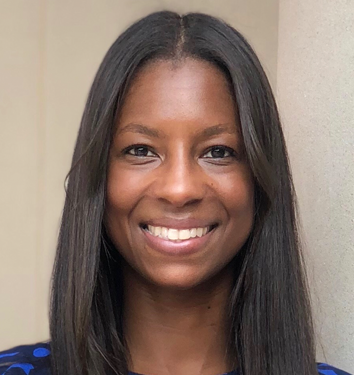
Randi M. Williams, PhD, MPH is an Assistant Professor in the Department of Oncology and a member of the Cancer Prevention and Control Program within the Lombardi Comprehensive Cancer Center at Georgetown University Medical Center. Her research focuses on methods to promote the adoption of evidence-based lung cancer control practices to advance health equity.
Dr. Williams’s program of research utilizes multilevel approaches to promote equitable care within the healthcare setting. In her ongoing National Cancer Institute-funded career development award (K99/R00), Dr. Williams is targeting provider and patient behavior, two key levels of influence in the healthcare setting, to promote patient-provider communication about lung cancer screening, and to advance equity in rates of screening between Black and White patients. Dr. Williams also co-leads a quality improvement initiative funded by the DC Department of Health to address tobacco-related disparities. This health systems change project will integrate the tobacco quitline into the electronic health record (EHR) to increase e-referrals for tobacco cessation and automate smoking history pack-years to improve referrals to lung screening across the MedStar Health System. Additionally, Dr. Williams recently led the development of a self-directed Health Disparities and Lung Cancer Screening course designed for primary care providers that is currently being evaluated in a pilot trial.
Dr. Williams’s activities at Georgetown include co-leading the Dissemination and Implementation Affinity Group, serving as a preceptor for the Cancer Population Science (CPaS) T32 postdoctoral training program, and serving on the Racial Justice Committee for Change Curriculum Reform Subcommittee. Dr. Williams completed her postdoctoral fellowship with Dr. Kathryn L. Taylor and Dr. Lucile Adams-Campbell at Lombardi under a Diversity Supplement to Dr. Taylor’s R01(CA207228-S1). She received her PhD in behavioral and community health from the University of Maryland, College Park, School of Public Health. Dr. Williams obtained her Master’s of public health in behavioral sciences and health education from Emory University, Rollins School of Public Health. Prior to attending Emory, she received a Bachelor of Arts degree in psychology from Syracuse University.

Dr. Kerri Winters-Stone is an exercise scientist and the Elnora Thomson Distinguished Professor in the Oregon Health & Science University School of Nursing. She is also co-director of the Knight Community Partnership Program and co-program leader of the Cancer Prevention and Control Program for the OHSU Knight Cancer Institute. As a scientist, Dr. Winters-Stone’s research focuses on the effects of cancer treatment on fracture, frailty and cancer recurrence risk and the ability of exercise to improve health and longevity in cancer survivors. The long-term goal of her research is to develop prescriptive exercise programs for cancer survivors that meets their needs and preferences and optimizes their health outcomes. Her research has received funding from the National Institutes of Health, the Centers for Disease Control, the Lance Armstrong Foundation, the American Cancer Society, Movember Foundation and the Susan G. Komen for the Cure Foundation. She has completed several randomized controlled exercise trials aimed to optimize health, physical function and survival in breast and prostate cancer survivors and recently completed the largest clinical exercise trial aimed to reduce falls among women cancer survivors. Dr. Winters-Stone is committed to translating her evidence-based interventions to the community and to survivors across the country. She has authored the book “Action Plan for Osteoporosis” which is part of the American College of Sports Medicine’s Action Plan series of evidence-based exercise guides for health, and is leading a project sponsored by the Movember foundation to develop an internet based tailored exercise and support program to prostate cancer survivors across the US.

Dr. Woodard is a researcher and educator forging a career path marked by a commitment to shaping the next generation of diverse researchers and addressing health disparities within the Black and African American communities, particularly cancer health disparities. Dr. Woodard holds an undergraduate degree in Public Health and Psychology from the University of Rochester, and earned a Master of Public Health degree and a PhD in Behavioral and Community Health from the University of Maryland. Dr. Woodard's research lies in the multilevel factors influencing cancer risk, prevention, screening, and outcomes, and intervention design, implementation, and evaluation to improve cancer-related behaviors and outcomes, especially among Black and African American populations. His intervention research employs community-based and implementation science methods to address cancer disparities. Beyond the research setting, Dr. Woodard partners with non-profit organizations providing health and human services support to community members in need including the Angelic Warrior Foundation, Community Ministry of Prince George’s County, and North Carolina Minority Prostate Cancer Awareness Action Team.

Lauren Workman, PhD, MPH, is a Research Assistant Professor in the Department of Health Services Policy and Management and the Center for Applied Research and Evaluation (CARE) at the Arnold School of Public Health, University of South Carolina. Dr. Workman’s research expertise is in program evaluation, with a specific focus on community health development, health systems transformation, and use of qualitative methods. Her current research is focused on evaluating maternal and child health home visiting programs, partnerships to support pregnant and parenting teens, healthcare networks for uninsured individuals, and community based health promotion interventions. Dr. Workman received an MPH (2006) and PhD (2013) in Health Promotion, Education, and Behavior from the University of South Carolina’s Arnold School of Public Health.
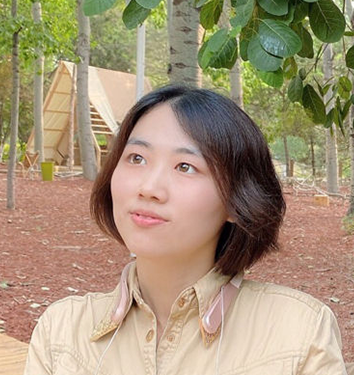
Jingle is currently serving as the research assistant at the CPCRN coordinating center. She is a PhD student at UNC School of Nursing. Her research centers on alternative medicine (e.g. diet and physical activity) in cancer care and control.


Sarah Yeo, PhD, MPP, is an NIH T32 Postdoctoral Fellow at the University of Arizona Cancer Center. Her doctoral studies were in Health Behavior Health Promotion at the Mel and Enid Zuckerman College of Public Health, University of Arizona. Her research focuses on addressing health disparities in refugee and minority populations, employing mixed methods, global health, and cancer prevention. She worked as an evaluation and research specialist at World Vision, an international development organization, where she led various evaluation and research initiatives. She is a certified professional trainer for MAXQDA, a qualitative data analysis software.


Whitney Zahnd, PhD is a tenure-track assistant professor in the Department of Health Management and Policy in the College of Public Health at the University of Iowa where she is also a full member of the Holden Comprehensive Cancer Center’s Cancer Epidemiology and Population Sciences Program. Her research employs health services research, social epidemiological, and spatial methods to address rural cancer disparities across the continuum and to evaluate access to health care services. She is actively involved in the CPCRN’s Rural Cancer Workgroup and Social Deprivation Interest Group. Dr. Zahnd is a 2021 National Rural Health Association Rural Health Fellow and currently serves on the editorial board of the Journal of Rural Health. Before joining the University of Iowa faculty, Dr. Zahnd completed post-doctoral training and served as research faculty at the Rural & Minority Health Research Center at the University of South Carolina. Prior to earning her doctorate in community health from the University of Illinois Urbana-Champaign in 2018, she worked for eleven years as a master’s trained researcher at Southern Illinois University School of Medicine supporting rural health and cancer disparities research.

Steve Zeliadt is a Research Associate Professor in the Department of Health Services in the University of Washington’s School of Public Health and the Associate Director for the Seattle VA Health Services Research & Development Center of Innovation to Promote Veteran-Centered and Value-Driven Care. One of his key roles as Associate Director is to support early stage investigators at the Center, which includes working with students, recruiting graduates into our post-doctoral programs, and supporting them on the path to independent academic careers in grant-funded research.
Steve trained as a health economist/health services researcher and has focused his career on using data to appropriately inform care delivery targeting gaps in knowledge about population outcomes associated with implementation of policies and healthcare interventions. His work has been used to guide policy makers in understanding broad implications of healthcare policies at the population level, and to help providers and patients in making individual care decisions. His expertise involves pragmatic study design and methods for untangling potential biases observed in real-world adoption of health technologies and interventions. He is leading the cost and outcome assessment of VHA’s response to the CARA Act of 2016 in which complementary and integrative health interventions are being rolled out to Veterans to help manage chronic pain and reduce opioid utilization. Recent positive findings from the National Lung Screening Trial have led VA and health care systems across the US to work to implement lung cancer screening. His current area of research is focused on helping low-resource health systems, including VA and Federally Qualified Health Centers, implementing lung cancer screening in ways to ensure maximization of its benefits. His work examining smoking cessation has led to the successful pilot testing of care tools in collaboration with VA’s national quitline (1-855-QUIT-VET) for potential national implementation.




